









Dedicated coverage of gaming in the Americas May/Jun 2023 THE WORLD CUP OF NEW YORK BIG APPLE: Michael Hershman joins us as the race for the first NYC casino license heats up FROM THE TOP: We review March Madness as US sports betting continues to surge ON THE CASINO FLOOR: GamingAmerica speaks to companies across the supply chain


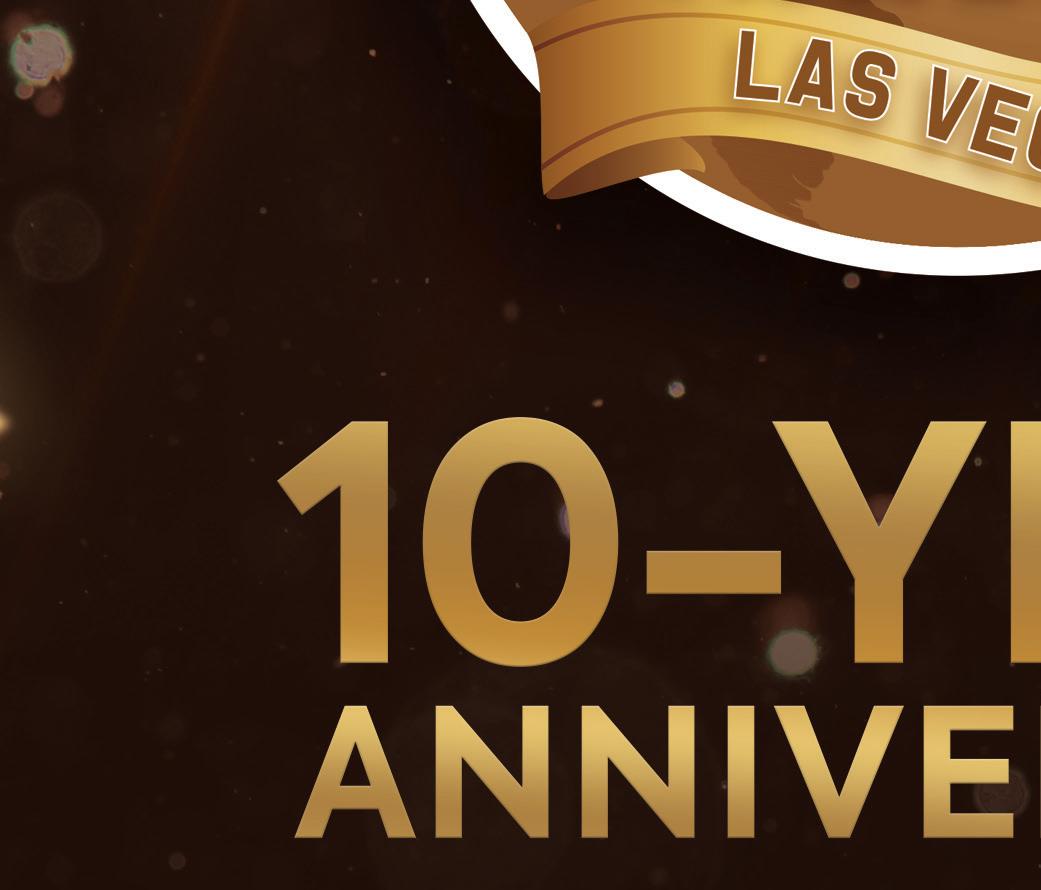












2 | GAMINGAMERICA GLOBAL GAMING
AWARDS

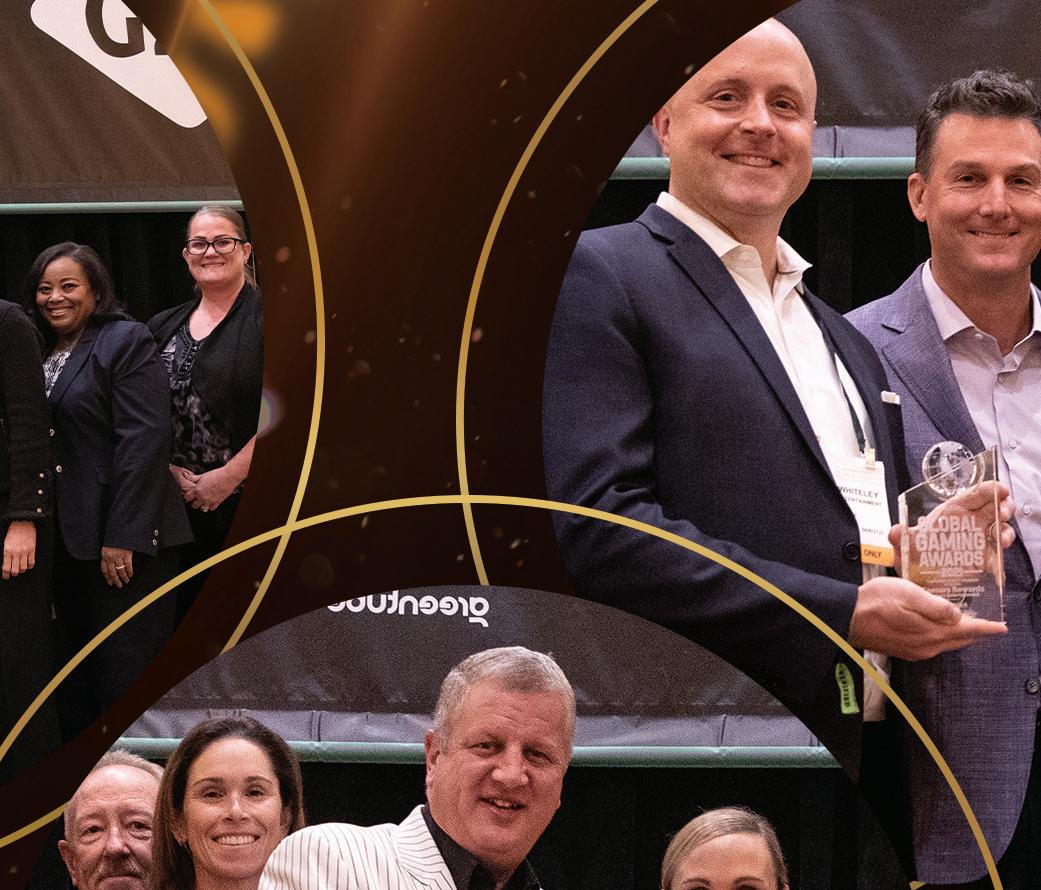













AMERICA | 3 | GAMING AMERICA
COO, EDITOR IN CHIEF
Julian Perry
STAFF WRITERS
Stephanie Feeley
Stephanie.Feeley@gamingamerica.com
Laura Mack
Laura.Mack@gamingamerica.com
LEAD DESIGNER
Brendan Morrell DESIGNERS
Olesya Adamska, Christian Quiling
DESIGN ASSISTANTS
Radostina Mihaylova, Svetlana Stoyanova, Gabriela Baleva
MARKETING & EVENTS MANAGER
Mariya Savova
FINANCE AND ADMINISTRATION ASSISTANT
Julia Olivan
PRODUCTION CONTROLLER
Oleksandra Myronova
IT MANAGER
Tom Powling

COMMERCIAL DIRECTOR
Deepak Malkani
Deepak.Malkani@gamblinginsider.com
Tel: +44 (0)20 7729 6279
US BUSINESS DEVELOPMENT MANAGER

Aaron Harvey
Aaron.Harvey@playerspublishing.com

Tel: +1 702 425 7818
ADVERTISING SALES EXECUTIVE
Ariel Greenberg
Ariel.Greenberg@playerspublishing.com

Tel: +1.702 833 9581
SENIOR ACCOUNT MANAGER
Michael Juqula
Michael.Juqula@gamblinginsider.com
Tel: +44 (0)20 3487 0498
ACCOUNT MANAGERS
William Aderele
William.Aderele@gamblinginsider.com
Tel: +44 (0)20 7739 2062
Irina Litvinova
Irina.Litvinova@gamblinginsider.com
Tel: +44 207 613 5863
Martin O'Shea
Martin.Oshea@gamblinginsider.com
Tel: +44 (0) 207 729 0643
Serena Kwong
Serena.Kwong@gamblinginsider.com
Tel: +44 (0)20 3435 5628
BUSINESS DEVELOPMENT MANAGER
Michelle Pugh
Michelle.Pugh@gamblinginsider.com
Tel: +44 (0)20 7739 5768
CREDIT MANAGER
Rachel Voit
WITH THANKS TO:
Chris Wieners, Je Baldi, Steve Bright, Cleve Tzung, E. Sequoyah Simermeyer, Jeannie Hovland, Michael Hershman, Derik Mooberry, Bill Pascrell III, Oliver Lovat, Shivan Patel, Yugo Kinoshita, Declain Raines, Bill Yucatonis, Mike Salvaris, Ambus Hunter, Epom, Travis Geiger, Mandi Hart, Anne Hay, John Skorick, Victor Newsom, Chris Justice Gaming America magazine ISSN 2632-766X


EDITOR’S LETTER
JULIAN PERRY, COO, Editor-in-Chief



Does it get bigger than the Big Apple? With the race for an NYC casino license heating up, the city is certainly getting plenty of attention for gaming right now. Accordingly, our magnificent team has produced an in-depth exploration of the race in this issue's cover feature (pages 26-31), dubbed "the World Cup of New York" by our exclusive interviewee Michael Hershman. Hershman is CEO of the Soloviev Group, partnered with Mohegan as one of the bidders for a downstate New York casino license. Other bidders are plentiful – and formidable. Just look at Las Vegas Sands: with several properties across Asia and now none in actual Las Vegas, the operator is also bidding for a license in New York. Make it make sense!
While New York is our hot topic, though, it undoubtedly isn't our only major talking point this issue. We have interviews with CasinoTrac (page 16), OPTX (page 18), Passport Technology (page 22), Zitro USA (page 32) and Aruze Gaming (page 40) for all kinds of different perspectives on the casino floor. Elsewhere, our storied columnist Oliver Lovat returns this issue with a typically detailed feature on the history of The Dunes (page 36), and we have an interview with Ambus Hunter (page 48), a recovered problem gambler-turned-financial advisor.
It's a pretty action-packed issue, overall, with several returning contributors (including the National Indian Gaming Commission), our Viewpoints feature on the topical issue of payments, and reviews of several hot new products on the casino floor. We also look back on the IGA tradeshow, during what has been an especially busy time for the industry at large. There's plenty to get stuck into, so we hope you enjoy the magazine!
Editor-in-Chief Julian Perry
FEATURED IN THIS ISSUE
and published
Publishing Ltd All material is strictly copyrighted and all rights reserved. Reproduction without permission is forbidden. Every care is taken in compiling the contents of Gambling Insider but we assume no responsibility for the e ects arising therefrom. The views expressed are not necessarily those of the publisher.
Produced
by Players
CHECK OUT GAMINGAMERICA.COM FOR THE BEST IN BREAKING NEWS
MICHAEL HERSHMAN Soloviev Group CEO
OLIVER LOVAT Denstone Group CEO

08
FROM THE TOP: BETTORS AND BALLERS
Was this year's NCAA March Madness tournament a slam dunk for the US sports betting industry?
12

14
RG IN THE USA
Which states have taken the most tangible actions toward achieving responsible gaming (RG)?
IGA 2023 SAN DIEGO – AN EXHIBITOR’S POV

Chris Wieners, Velvix MD, reviews April’s Indian Gaming Association (IGA) tradeshow in California.

16
THE IDEAL STATE: PLAYING THE GAME
Jeff Baldi, SVP of Commercial Strategy at CasinoTrac, spoke to Gaming America about the elegance of software, the importance of customer experience and plans for growth.
18
THE FUTURE BEFORE THE FUTURE
Speaking to Gaming America, VP of OPTX Data Science, Steve Bright, assures us humans are still at the core of the economic premise behind understanding behavior.
22
ARCHITECTS OF DATA
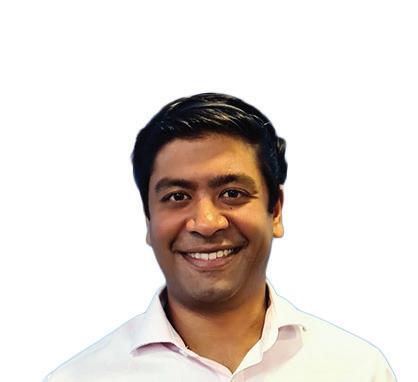
Passport Technology CEO Cleve Tzung spoke to Gaming America about streamlining payments and data with the casino floor in mind.
24
MODERNIZING NIGC REGULATIONS

Chairman E. Sequoyah Simermeyer and Vice Chair Jeannie Hovland discuss proposed changes for key employees and primary management officials.
26
THE WORLD CUP OF NEW YORK
Gaming America closely examines the bidding process to add a casino to the New York City cultural and entertainment landscape. Michael Hershman, CEO of the Soloviev Group, is also on hand to provide exclusive insight into his company’s bid.

6 | GAMINGAMERICA GAMING AMERICA | CONTENTS
39 Shivan Patel
40
24 Jeannie Hovland
32


GREAT GAMES TRANSCEND
Derik Mooberry, CEO of Zitro USA, speaks about innovation in the US market vs global success.
34 HOW OPERATORS SHOULD PROMOTE RESPONSIBLE GAMBLING

William J. Pascrell, III, Esq. speaks to Gaming America about how the gaming industry can research, educate and collaborate to promote better gaming habits.
36
THE CURSE OF THE SULTAN
Gaming America regular contributor Oliver Lovat is back! Here, he discusses The Dunes, the Las Vegas Strip’s 10th resort to be built...
39
40
PARIPLAY OP-ED
Shivan Patel talks aggregation.
NEW APPROACHES ON OLD CLASSICS
Yugo Kinoshita, Global CEO of Aruze Gaming Group, speaks to Gaming America about innovation and trends on the casino floor.
42
DIFFICULT BUT CRITICAL
Gaming America contributor Declan Raines, Head of US Gaming at TransUnion, discusses why reducing abandonment during onboarding is hard but vitally important.

44

NICHE SPORTS GO PRO
Gaming America sits down with Pro League Network’s Co-Founders Mike Salvaris and Bill Yucatonis to discuss the advent of niche sports betting.
48 TRIGGERS, BOUNDARIES & A BALANCED REALITY
Accredited Financial Counselor Ambus Hunter speaks with Gaming America, sharing his story of recovering from problem gambling addiction and working toward financial recovery.

50 HOW'S YOUR SOCIAL LIFE?
Research looks into which forms of social media are most effective for gaming operators.
56 BECOMING A BETTER BETTOR
Travis Geiger of WagerWire speaks to Gaming America about the brand’s attempts to launch a new concept, a social media community and a Bet Value Calculator, through the ethos of ‘being a good hang.’
58 VIEWPOINTS
Five payments industry experts discuss their opinions on customer loyalty, alternative payments and more.
63 PRODUCT REVIEWS


Gaming America looks at four suppliers' newest land-based slots, available across the country.


GAMINGAMERICA | 7 CONTENTS | GAMING AMERICA
48 Ambus Hunter
58 Mandi Hart
FROM THE TOP: BETTORS AND BALLERS
Was this year’s March Madness NCAA tournament a slam dunk for the US sports betting industry?
In 2022, $3.1bn was projected to be wagered on the March Madness tournament by 45 million American basketball fans. Fast forward to 2023 and the same American Gaming Association (AGA) research shows that number has meteorically risen to $15.5bn for the tournament, bet by 68 million fans.

In total, $16bn was wagered on Super Bowl LVII only a month earlier, but a comparatively small $1.8bn was bet by American soccer fans on the World Cup in the fall of 2022, making March Madness stand out. Perhaps the biggest surprise, and what may be bolstering basketball bettors, is the rebound in popularity of bracket competitions – which the AGA said 56.3 million Americans took part in this March. This increase in fans’ madness for sports betting could also be due to the number of legal markets now available. There were 33+ legal live sports betting states including Washington DC, in which 57% of American adults happen to live in these states – and potentially watch basketball. AGA President and CEO, Bill Miller, said of the tournament, “March Madness is one of the best traditions in American sports – and America’s most wagered-on competition. Critically, the expansion of regulated sports betting over the past five years has brought safeguards to more than half of American adults who can now bet legally in their home market.”
A bracket of 68 hopeful college teams represented a total of 37 states and Washington DC, but only 22 states with a
team in the tournament had legalized sports betting. Newcomers Massachusetts, Ohio and Kansas have only recently legalized and launched legal sports betting for their residents, while other states have introduced mobile betting options. Maryland Lottery and Gaming Director John Martin said, “This was the first time mobile wagering on March Madness was available in Maryland, and as our market continues to mature, we’re pleased to see it generate a strong contribution to education funding.”
WHO’S GOING ALL IN?
Millions of hopeful basketball fans engage by taking part in March Madness competitions meant for bettors rather than ballers. Incentive Games and bet365 offered perhaps the largest grand prize: a $10m jackpot for anyone who bet a perfectly accurate list of winning teams in their Mega March Bracket Challenge. The game was free to play in New Jersey, Virginia, Colorado, Ohio, Mexico and New Zealand; a leaderboard and other prizes were available based on points earned for any correct prediction. The odds of filling out a perfect bracket, though, were a staggering 1 in 9.2 quintillion.
BetRivers launched bonus payouts in a new NCAA version of its Squares game. A winning standard square earned $20 in bonus money for that bettor, while the potential payout for winning “boosted” squares was worth designated amounts ranging from $25 to $10,000. Betr also expanded from its usual offerings, from microbetting
to a core sports betting market. Bettors could wager on an outright winner, the margin of win and an over/under on total points. Other gaming providers that sought to offer more options included: Meridianbet, a European sports betting operator, which announced more than 200 odds per game and Low6, an iGaming freeplay provider that created a customizable bracket game suite with Clutchbet, from Australian bookmaker, Bluebet.
Tipico Sportsbook’s in-app competition announced a winner, and started at a modest $20 minimum wager. Bettors could place unlimited bets throughout the duration of the tournament, rank on state leaderboards, earn exclusive rewards and potentially win a grand prize. Tipico’s competition winner, who placed over 110 winning betslips with a total of $10,000 in handle, won a full year of bet credits.
GUARDING THE POINTS
These contests and operators did not see any advertisement air time during March Madness games, though. 2023’s Super Bowl saw an uptick in sports betting advertising deals, including a DraftKings and Molson Coors “High Stakes Beer Ad,” but the NCAA bans networks from selling air time to sportsbook ads. The organization’s website contains an official statement saying, “Sports competition should be appreciated for the inherent benefits related to participation of student
8 | GAMINGAMERICA GAMING AMERICA | FROM THE TOP

-athletes, coaches and institutions in fair contests, not the amount of money wagered on the outcome of the competition.”
College football games, however, have not seen the same blanket ban on sportsbook advertising. The New York Times called relationships between popular sportsbooks and several universities the ‘Caesarization’ of campuses. Caesars Sportsbook and Michigan State University struck the first deal in 2021.


As of November 2022, at least eight universities had partnered with sportsbooks. However, the AGA marketing code now prohibits new “college partnerships that promote, market or advertise sports wagering activity.” The University of Colorado ended its “controversial” partnership with PointsBet only a day after the AGA’s announcement of the new code, and other schools may soon follow that lead. Michigan State faculty members have already started a petition to end its athletic department’s $9m Caesars partnership. Conversely, the AGA has also reported that Americans under 35-years-old are both more likely to remember viewing a responsible gaming message and more likely to advocate the importance of wagering legally.






Historically, no matter how much money is bet during the course of the action, neither the schools nor the players see a cent of that handle. The Supreme Court ruled in 2021 that players can receive sponsorships and negotiate endorsement deals, but even the schools and players with the most favorable odds can’t make any revenue from the overs, point spreads, or totals that bettors predict.
NOTHING BUT NET (PROFIT)?
Overall US tax revenue from sports wagers in 2022 reached a combined $1.4bn, across 27 legal states. With more states legalizing the ability to wager on a win for the home team, more states have benefitted from increased revenue during the mad rush to bet this March. The American Action Forum has already reported a disparity between tax revenue structure in each state where sports betting is legal. In New York alone the rules differ greatly; mobile betting
revenue is taxed at 51%, while land-based revenue is taxed 10%. The Empire State brought in a total of $1.8bn in bets during March 2023.
Texas, which hosted the Final Four games, has yet to legalize sports betting. However, bettors didn’t have to look very hard for websites posting lists of sportsbooks that still accept bets from the Lone Star State. Unregulated and offshore betting was still easily accessible to those hoping to make a backdoor cut around state laws. Wagers with unlicensed sportsbooks took nearly $4bn in revenue from legal operators in 2022, also taking $700m in taxes and fees away from the states.

Critics of sports betting’s sweep of the nation have focused on potential rises in gambling addiction rather than rises in tax revenue. This quick and thorough expansion of legal gambling creates a duality between excitement and responsibility. Michigan’s ‘Don’t Regret the Bet’ campaign urges players to: “think of gambling as “entertainment, not a side job.” The Massachusetts Gaming Commission (MGC), in its newly legal gambling market, has also already introduced PlayMyWay, a free budgeting tool to track player spending.
According to the AGA, three quarters of this year’s March Madness bettors using popular online sportsbooks were brand new to placing sports bets online. While March Madness wasn't expected to quite reach the $16bn handle heights of Super Bowl Sunday, sportsbooks like DraftKings are already predicting the odds for the 2024 tournament, and states’ reported gaming revenues for March are on the rise due to the madness. No matter which schools do well, odds are that sportsbooks will see even more legal sports bets placed around 2024’s Big Dance.






10 | GAMINGAMERICA
AMERICA | FROM THE TOP
GAMING

RG IN THE USA
Which states have taken the most tangible actions toward achieving responsible gaming (RG)?

































































































































MINNESOTA




A Minnesota Court of Appeals ruled that the ‘open-all’ feature on electronic pull-tab casino games was improperly allowed and would be illegalized in the future. It made this decision due to Tribal protest, who complained this feature was too similar to the mechanics of a slot machine, over which they have a monopoly in the Gopher State. It was argued these pull-tab casino games broke RG guidelines due to their highly addictive nature.
NEVADA, MICHIGAN AND WEST VIRGINIA














All of these states failed to meet National Council on Problem Gambling (NCPG) standards relating to iGaming specifically. The NCPG reported that these states fell drastically short of meeting its Internet Responsible Gaming Standards, which are meant to provide players with sufficient RG gambling protections. This report came out at the end of January 2023.

12 | GAMINGAMERICA GAMING AMERICA | RESPONSIBLE GAMING
MT WA OR UT CO AZ NM AK HI WY ID
NV
NEW YORK
Senator Joseph P. Addabbo Jr. stepped up to promote Problem Gambling Awareness Month in March 2023. Indeed, Addabbo announced in October 2022 that NY would be implementing responsible gaming training for all lottery vendors. This training will focus on underage gambling, teaching operators how to properly verify gamblers' ages and recognize fake IDs.
MAINE

Maine launched a virtual self-exclusion program, which will allow people to voluntarily exclude themselves from casino gambling, in March 2023. The state’s Gambling Control Board says that, before this virtual option was made available, people would have to go out to designated locations to fill out a form. With the virtual form, the process is made far more convenient.








MASSACHUSETTS










































The Bay State launched a program formulated by regulators to prevent problem gambling, called ‘GameSense,’ in February 2023, ahead of the state’s launch of online sports betting on March 10. The RG program aims to inform gamblers about the realities of betting, including the low likelihood of winning money. It also educates them on practices such as self-exclusion.

































































































The Delaware Council on Gaming Problems (DCGP) received a Best in Show award at the Healthcare Advertising Awards in August 2022, for its innovative ad campaign on problem gaming. The DCPG teamed up with the AB&C advertising agency to create ad spots in an attempt to educate and inform bettors.
















RESPONSIBLE GAMING | GAMING AMERICA GAMINGAMERICA | 13
ND MN WI IA NE TX OK MO IL IN OH WV VA NC SC GA FL AL MS LA AR TN KY VT ME NH MI MA NY PA
DELAWARE
KS
IGA 2023 SAN DIEGO: AN EXHIBITOR’S POV
Chris Wieners, Velvix MD, reviews April’s Indian Gaming Association (IGA) tradeshow in California.
The recent IGA 2023 show held in San Diego, California, was another example of the post-Covid world returning to normal: a busy tradeshow floor, Tribal representation from across the US and excited operators ready to purchase – I think one can truly say “we’re back!” With all of the excitement that came with the show's return to San Diego, there were definitely some unique aspects worth pointing out, which showcase both the current state of affairs for Tribal gaming operators and a glimpse into what the future may hold – good and bad. Here are some of my observations as an exhibitor who walked the floor and connected with clients, industry partners and competitors.
CHANGING TIDES – THE MOVE TO STRAIGHT PURCHASE OF GAMING EQUIPMENT
While this may not be specific to Tribal gaming, the reliance on daily fees and revenue share is definitely shifting. With the majority of operators experiencing an amazing two-year run, we are witnessing a shift from interest in long-term lease and rev-share deals to more straight purchase requests. To be candid, this makes it significantly harder for both newer and smaller manufacturers, who must truly prove their worth (and their longevity) to be rightfully considered for placement. It's not an impossible task, but definitely more difficult if you’re new to the market.
INNOVATION – MORE CAN BE DONE FOR TRIBAL OPERATORS
Something that could further liven up IGA, and interest in it, are the innovations showcased across the tradeshow floor. It’s no secret that most major manufacturers
CHRIS WEINERS
 Velvix Managing Director
Velvix Managing Director
are ‘saving up’ for their big product launches at G2E. While not true for all, there is definitely a lot to be said for scale (not only in regard to size) of the booths. Understandably it makes more financial sense for operators to go all out for G2E. However, I think there is something to be said for additional, unique innovations, offerings and on-floor events at IGA.
SAN DIEGO VS. ANAHEIM – WHO DOES IT BETTER?
One of the most contested announcements was that of the movement back to Anaheim for IGA 2024. I heard considerably mixed messages from both operators and manufacturers. In some cases, Anaheim is an easier location to get to. It does offer a considerable infrastructure when it comes to tourism and conferences. However, I believe the general feeling was that San Diego,
when available, makes for a much better conference. Regardless of your preference in baseball teams, San Diego's location, proximity to the airport and hotels, as well as overall vibe, seem to put the city ahead.
GAME DESIGN – TIMES ARE CHANGING
Anecdotally, there were some interesting changes happening in game design, which were present at various slot manufacturers across the board. Our team checked out various competitors during the event and noticed a few key trends including: Significantly more multi-feature games; Cash on reels (i.e. hold and re-spin) is still hot; Significantly more randomized triggers vs. the previous 3 Scatter (landing) trigger features.
Representing an operator that is 100% focused on Tribal gaming operators in the USA, I can safely say that IGA is our group’s most important show of the year. While it may not have the scale of G2E, its pure focus on Tribal gaming allows manufacturers and service providers the ability to connect with Tribal operators in a way that's not really possible at some of the larger shows. The integration of the IGA board meeting, the attendance by national Tribal councils and a complete focus on the issues facing the Tribal gaming industry make this a show that only has room to grow. I believe it's imperative for IGA (as an association) to focus on growth and representation, as well as to leverage the resources of its partners (think, non-native organizations) to help further build the strength of the organization, and ultimately, the annual trade show at large. I, for one, am excited about what the next five years hold in store for Tribal properties across the US and to be part of it myself.
14 | GAMINGAMERICA GAMING AMERICA | CHRIS WIENERS

THE IDEAL STATE: PLAYING THE GAME
Jeff Baldi , SVP of Commercial Strategy at CasinoTrac, spoke to Gaming America about the elegance of software, the importance of customer experience and the supplier's plans for growth.
Since Table Trac’s and DataTrac’s introductions in 2020, are there are any other new programs you’re working on now?
Our primary focus continues to be CasinoTrac, the enhancement and expansion of our wide-ranging casino management system. We expect v5, our next major release, to be in the submission phase by G2E 2023. With that said, we are proud of new features, apps and modules that have been released. For example, KioskTrac Mobile is an absolute killer app. KTM is an all-inclusive, integrated app that
room access, plus all loyalty balances and status. It’s exciting. And it’s a monumental effort from Chad Hoehne, President & CEO/CTO and our development, QA, support and training teams.
With CasinoTrac, Table Trac, AlertTrac, KioskTrac, DataTrac, many functions have now been automated. Can you tell us how that helps casino staff and what they’re free to focus on in person now?
Simply put, these features help our casino partners focus on service and
strategies, and enforce their internal policies and procedures, without the ‘tech’ getting in the way. Elegant software should support the business, not force organizational change, the need to add an army of staff to monitor and operate or constantly require vendor intervention.
Tell us more about your slogan ‘known players of known value,’ and how the CasinoTrac software spots and tracks the right players at the right time.
This brings us full circle back to our focus: helping our partners deliver their best customer experience. The real-time nature of our operational components puts the important data in the hands of our partners when they need it. To give just one example: consider the service opportunities created when a slot supervisor or casino host is notified that a VIP receives one of our Reflexive Rewards or is dynamically re-tiered, in real-time. That player’s experience goes to the next level when the emotional and social components are layered on top of the feelings of winning or unlocking a higher tier.
will provide our casino partners with an unprecedented customer experience. It’s an all-inclusive ‘out of the box’ cashless & credit, PMS & POS experience, offering
delivering the apex guest experience. Table Trac is focused on providing an ecosystem that enables our partners to deliver their customer experience
What capability have clients asked you to include in your software the most over the years? Or what feature have clients praised the most?
The client requests can be seen in our most recent updates and enhancements. We
16 | GAMINGAMERICA GAMING AMERICA | JEFF BALDI
"THERE ARE DIFFERENT TACTICS, BUT THEY COMPRISE THE STRATEGY. THE CASINOTRAC TECH STACK FACILITATES EFFICIENT AND SECURE TRANSACTIONS, SO THE ‘SYSTEM’ DOESN’T INTERFERE OR SLOW THINGS DOWN."
have been asked for features like enhanced notifications and communications, which we’ve delivered via the CasinoTrac 6.2 touchscreen player interface, like hot seat winners. Integrating third parties, like Marker Trax and Koin into the KTM Cashless function, has created a lot of excitement. Casino players are excited about options we have created with hand pays and w2glevel jackpots being handled at the credit meter, significantly reducing wait times and increasing play time.
How does your software keep players at the tables and at the machines?

There are different tactics, but they comprize the strategy. The CasinoTrac tech stack facilitates efficient and secure transactions, so the ‘system’ doesn’t interfere or slow things down. For table games, this means the player isn’t forced to use special chips or hardware and can move spots with ease, when they want – the dealer and pit staff can also use the system easily without being inconvenienced. With the slot floor, the in-action player, is the ideal state. We strive to enable speedy jackpots and fast alerts for errors or tilts – anything & everything to get the game back in service and the player back to the ideal state: playing the game of their choice.
millions of transactions 24-7, 365. I think everyone would agree that data security is ‘top of mind’ for every IT boss, General Manager, etc. Our intranet, browser-based strategy, built on Linux COBOL, delivers highly secure systems, using the same programming language trusted by governments, banks and business systems for decades. It has yet to be penetrated, even when ‘racked’ next to systems that have been.
You are currently in 13 countries. Do you plan to expand to any others?
business into ‘new’ traditional markets, like Florida, Mississippi and Louisiana, and expanding our existing footprint.

Is there anything else happening at CasinoTrac that you’d like to discuss now?


We are running into 2023, following a record in 2022. We broke a revenue milestone and are eager to continue breaking records. We are implementing internal changes to prepare for that continued, responsible growth; investing in our co-workers, working to increase brand awareness, and of course software development and support.

can move spots with ease, when they strive to enable speedy jackpots and in service and the player back to the ideal dynamic, high-traffic

Absolutely, yes. We are hyper-focused on expansion in the US, currently. But we constantly evaluate further international penetration and make those evaluations are in the process of implementing a careful, yet aggressive, approach to drive new
How does CasinoTrac eliminate data errors and security issues?



















…Speaking of ‘ideal states!’ The elimination of errors is tough, but we get pretty darn close. CasinoTrac is the backbone, the database of record. We are running a 13-game tavern or 3,000 games, fintech equipment, POS & PMS systems across our 280+ casino sites. All of these are third party connections in dynamic, high-traffic environments that handle
Jeff Baldi, CasinoTrac, SVP of Commercial Strategy



Our most important asset and investment is us, the crew. The commitment to support and shared success from the Table Trac team is a big part of what separates us from the pack. It’s an exciting time to be here, and I am very grateful to be part of it.
and success from the Table an and

JEFF BALDI | GAMING AMERICA
cautiously. We GAMINGAMERICA | 17
THE FUTURE BEFORE THE FUTURE

Speaking to Gaming America, VP of OPTX Data Science, Steve Bright, assures us humans are still at the core of the economic premise behind understanding behavior.







Thanks for joining us Steve! To start off with, we wanted to ask what made you switch from physics and data science to AI and machine learning?
I got into physics because of my interest in mathematics. I think physics, when you get to a deep enough level, really is just mathematics under the hood. And mathematics really is the ultimate source code and operating system for everything in the entire universe. That interest carried over into pursuing an undergraduate degree and eventually a PhD in particle physics. It was great because I got to play with cutting-edge technology. My thesis was on a previously unobserved particle decay process. That was really a fun, formative, intellectual experience. I always just enjoyed problem solving, using math, science, data and the scientific method to approach problems of all kinds.
That’s really what drove all my career choices: problems that are intellectually interesting and fun. So, I suppose I’ve been working as a data scientist, but since before people were calling themselves Data Scientists on LinkedIn. The transition to machine learning and AI is very, very natural. There’s nothing I know like AI. Machine learning gets very much mystified in

the popular press and in culture, but it’s just programs; it’s just computers. Computers will do whatever you tell them to do. I’m pretty skeptical of the notion that any sort of AI could really be considered to be self-aware in any sentient, meaningful way.

18 | GAMINGAMERICA GAMING AMERICA | STEVE BRIGHT
Steve Bright, VP, OPTX Data
Can you explain why you believe AI won’t take jobs away from humans?
What I’ve noticed, at least in the gaming industry, is that the stuff we’re looking for AI to do will not. It’s not, “we want to build this AI thing to make decisions that the person will no longer be responsible for.” That’s not what we’re doing at all. An analyst at a casino property spends hours of their time manipulating data, cleansing data, moving data from one place to another, dragging and dropping spreadsheets and so forth. What we’re doing is a way to present them with data so they can absorb it in a holistic way, and make some decisions and recommendations. Those are things a computer can be trained to do very easily. When the person is spending their time hunched over an Excel sheet, it’s not that they don’t have other things they would rather be doing, or that would be more valuable; it’s that they’re stuck doing this boring stuff we just haven’t been clever enough to automate yet.



So, my thinking is that once these things are automated, that will free up the person to do actual, valuable work.
In the casino industry, for example, it’s about creating a fun, recreational experience for the visitor and that’s a very human-on-human interaction. The real value of a casino is it’s a fun place where they can go and hang out with their friends, have a couple of drinks and play some games. It’s fun; that’s something you still need people for. You need the machine to do the non-fun stuff.
You’ve previously said, “AI is the co-pilot, not the autopilot.”
Can you tell us more here?
The idea is that the AI is doing all the automated Excel-type stuff, all the numerical manipulation. It can make some predictions — some cross correlations that a person could do eventually, but it’ll take them a long time. The person ultimately, especially in the casino setting right now, is
always going to have context that the machines will not. When faced with the dilemma of, “why is this certain machine not being played?” Well, is that machine by any chance by a stinky open sewer line? AI probably doesn’t know that, but the person walking the floor will. They can make judgments. That’s what we mean when we say the AI is the co-pilot, because the person can always grab the stick. Take off, landing, when there’s turbulence, when there’s stuff that you have to make decisions about — grab the stick and takeover.
Can you expand on the differences between your traditional offerings and your AI ones? You have a program called ‘Slots,’ but then you also have ‘Slots AI.’ What are the differences and how do they work?







Very broadly, most of what Slots is doing is reporting on numbers. Before you can report the numbers, you have to gather data from all these disparate sources. There are the slot games, table games, hotel, food and beverage, and all these various places that are run by their own different systems, which don’t really talk to each other. The data is in different formats. The player at your property doesn’t know or care about that; they want to walk in the door and have a good time. You can tell your visitor, “Hey, we would have liked to make this experience better for you,” but they don’t want to hear that, right? What we’re fundamentally doing is taking all these disparate sources and different data formats, combining them into this grand, unified framework that should be the same for every property, for every system. Once you have that, and you can give these reports in a very unified way, that’s where the AI can be added on top of that.
Everywhere you are reporting a number, in almost every case, that number can
also be a prediction. I’m telling you how well this machine did last week, but with a little bit of machine learning and some clever mathematics, you can now say what will happen next week – or what will happen if this popular machine that you only have two copies of will do with a third copy. Is it going to generate some incremental value, or is it just going to reshuffle players on the floor? Is that going to enhance
the player experience or detract from the experience in some way?
It’s really about enhancing the guest experience by taking these reports and findings, and translating them into predictions and recommendations so you can tell the operator something useful. You learn about these humans who are coming to your property
GAMINGAMERICA | 19 STEVE BRIGHT | GAMING AMERICA
to have fun and you can understand what’s really motivating them. What sort of player are they? What sort of things are they going to find more fun or less fun? You can adjust your operations accordingly. It’ll be about what’s happening for them, but also what will happen for you.
slot machines on your property only. Machine learning,without data sharing, is inherently customizable because the customization is part of the machine. Learning is part of training them outright.

Can you tell us about your Future Player Value product?
We have a fairly sophisticated machine-learning model that looks at the player’s gaming activity, some demographic variables and makes a prediction about what we think this player’s short-term activity in slot and table games is going to be. We update that on a cadence and we push those results to the client instantly. So when the operator pulls up the profile of a given player, it’s right there. Here’s what we think those players are going to do next month in terms of theirtotal activity.






And when operators are building campaigns rather than, or in addition to, segmenting the playerbase based on recent activity, we can now allow these properties to segment the playerbase based on who is going to do what in the next month. It’s about letting the property make decisions about the future – before the future gets here.
What is next for OPTX?
And what do you think going to happen to the casino industry at large?
Right now, all the data is very much siloed from property to property.
How customizable is your software?

We’re always generating new stuff, but the great thing about a machinelearning model is that the customization is built into the product. When we write a predictive model, we train it for your property, on your players and only your players. When we look at your slot machine floor and make recommendations, it’s based on
We’re also looking at a program where we would combine data for multiple properties. This is especially relevant for our Slots AI product. You may want to know: how is my property comparing relative to my peer group? Are players having to traverse the casino from one game to another or overlapping and playing various games? Are other games doing well at another property I may not have just yet?
That sort of data sharing provides
a big opportunity for additional, better, deeper learnings. We’re moving into that cautiously; if we’re talking about sharing data, we have to make sure we’re going to ensure data controls remain very vigorous. It’s something we only do with explicit permission and with a very well-defined and certain scope; we’re going to use this specific data for this specific purpose. I think having that informed consent of the operator is critical. These operators are trusting us with that data and that’s something we want to treat with the utmost care.
Is there one package or software from OPTX you think people have really benefited from the most over the years?
Probably not the AI stuff...
Not yet?
That’s right. What I hear from properties is they love the ability to mass communicate with players. It’s something that sounds like it should be super easy, but it’s something that always takes a village. It takes a lot of careful coding and careful programming. That’s why we have a great team of developers working on that.
So, whether AI or not, is the focus just on the players?
I really think it is. If you think of the two broad categories of what you can do to the property, it’s messing around with the game content and how you incentivize, reward and enhance the player experience. I think the players’ side is much more important, which is difficult. Slot machines are like computers; they all behave in a very predictable, well-defined way, whereas human beings do not. If you really understand the incentives and motivation for people, you have a good chance of understanding how a population of players will behave. That’s fundamental: the economic premise of understanding behavior.
20 | GAMINGAMERICA GAMING AMERICA | STEVE BRIGHT

ARCHITECTS OF DATA

Passport Technology CEO, Cleve Tzung, spoke to Gaming America about streamlining payments and data with the casino floor in mind.
You are currently operating in the US, the UK and Canada. We wanted to know what the biggest challenges have been within the US market, and if you found any particular states more challenging to work in than others.
The biggest challenge of working in the US for us, because we’re a relatively smaller company, is our presence and our name aren’t really well known. We built a base of business in certain jurisdictions and certain states. The biggest hurdle right now, is just more name recognition than anything else. What we found is when we bring customers in to see us, and we show them the story and where we’re going on our road map, they tend to get very excited. We tend to win a lot of business that way. It’s really just the fact that what we stand for in the in the eyes of the customers isn’t quite as well known. Now that we have a national salesforce, we’re starting to get the word out.
Is one of those things that customers are getting excited about the DataStream offering? Can you tell us how that works?








The DataStream is essentially a switch processor that powers our ATM and our debit POS services. It’s something that John Steely (COO/CIO) and Kent Cain (SVP Platform Operations) have spent many, many years developing and building. We’ve been powering retail ATMs for a number of years. We got it registered in the gaming environment, so now we can use it with our casino customers. It’s cloud-based, so it offers greater redundancy, just from an architecture standpoint. It also allows greater redundancy on the floor, so the reliability factor is much improved. We can add specific products through the software just for the gaming applications. We’re going to be introducing some fairly exciting new products through DataStream, only available in the DataStream, and those will be available to our casino customers. It offers greater reliability, greater redundancy, full control within our own stack and some exciting new products and features.
One of the features we wanted to ask about is your loyalty products and how those work.


The Lush Loyalty product is a kiosk-based product, but it offers web HTML5. It offers a full suite of promotions, player enrollment, points management and the ability for patrons to earn rewards points through games that either we can develop or the casino can develop. We’ve set up a template and we’ve made it very easy for the casino to go in and modify their promotions as they need to. Because marketing groups like to constantly refresh their promotions, and like to keep things exciting, our service really allows them to do that. On top of that, we’re also building this out to a mobile environment. We have an API that sits behind us, allowing us to integrate with all of the casinos’ functions, be it food and beverage, the retail function, or hotel management. This API is very powerful because you can integrate everything within one app. Lush is one of our products that, when we do get in front of customers, and demonstrate it to them and show them what it does, they can really see the capabilities and really get excited about it.
Has there been either one industry advancement, or an advancement within Passport, that’s really furthered your company’s success, like API or the cloud?

I think it’s actually both the DataStream and the Lush Loyalty, and the way we


22 | GAMINGAMERICA GAMING AMERICA | PASSPORT TECHNOLOGY
architected both of those. With a lot of cloud-based and HTML5-based services, we’ve been able to architect these products so that they are much, much more flexible. We’ve been able to create a DataStream and build it in a way that’s not built up of legacy systems. And what that means is, we’re able to kind of manipulate the data; we’re able to manipulate the products and introduce products much, much more rapidly than our competitors. On the loyalty side of things, we built it in a way that really puts a lot more flexibility in the hands of the customers. We think that’s a feature that casinos will appreciate. We can certainly do it for them, but it just allows them a level of customization when they’re running their marketing programmes, that we think is very, very powerful. It’s the ability to create these things in a way that it is much more palatable now, much faster and much more flexible for our casino customers.
and a casino kind of cash-on-the-floor improvement. The way we’ve done that is, we’ve built something with a mobile application so that a jackpot attendant can essentially fulfil a jackpot right on the spot with the customer. Whereas, right now it’s a process that involves a jackpot attendant going to the customer’s slot, shutting down the slot, going back to the hardware machine on the floor, doing a bunch of paperwork and then going back to customer. It’s really a very long and tedious process, and we’ve shortened that, so that’s another product that we are finding to be very popular.
Speaking of that casino floor and the flow of cash, do you think fully cashless
operation will ultimately be the future?




Do you plan to work with any US-based responsible gaming organizations? We know that you do within Canada and the UK. It’s part of our DNA to always be working with the regulators and always have a focus on responsible gaming. To the extent that we have opportunities to work with them, we certainly explore those opportunities, and are always looking for those opportunities. Like I said, it’s part of our DNA; it’s part of how we were founded in the UK and Canada. We’re certainly bringing that perspective to the US.

Has there been one payment solution that’s become your most popular over the years?













I don’t necessarily think that there’s any specific payment solution that’s the most popular. I think in terms of the payment types, we sort of follow the industry, in terms of what customers tend to gravitate toward. But in terms of the popularity of what people see when they come see us for a demonstration, the Lush is very popular. We have a jackpot device that is also proving to be very, very popular. The jackpot is essentially not really a payment device, but allows the casino to pay out their jackpots much more quickly and efficiently, which we think is really a customer satisfaction
I don’t necessarily think that casino floors will be completely cashless. I do think digital wallets and cashless operations will become more popular, but I think cash is a pretty frictionless operation on the floor. The customer is ultimately going to drive what’s on the floor. I think that there is a certain set of customers, be they of the older set that’s comfortable with cash, or whether there is a group that tends to like to play anonymously, simply because they don’t necessarily want to be tracked. There’s always going to be a set of customers that are going to want to use cash – whether that set of customers is 50%, 20%, 80% – it could be any of the above. It’ll follow a growth curve, but I don’t think cash will completely disappear off the floor.
GAMINGAMERICA | 23 PASSPORT TECHNOLOGY | GAMING AMERICA
Cleve Tzung CEO, Passport Technology
"THE BIGGEST HURDLE RIGHT NOW, IS JUST MORE NAME RECOGNITION THAN ANYTHING ELSE."
MODERNIZING NIGC REGULATIONS
Chairman E. Sequoyah Simermeyer and Vice Chair Jeannie Hovland discuss proposed changes for key employees and primary management officials.
During Tribal Consultations that took place from July 2021 through February 2022, the National Indian Gaming Commission (NIGC) solicited input on proposed rules updating, changing or clarifying NIGC regulations to support Tribal self-sufficiency and the integrity of Indian gaming.
The Indian Gaming Regulatory Act (IGRA) requires that “background investigations are conducted on the primary management officials, and key employees of the gaming enterprise and that oversight of such officials and their management is conducted on an ongoing basis…”
25 U.S.C. § 2710(b)(2)(F)(i) (emphasis added). NIGC has defined “key employee” and “primary management official” at 25 § C.F.R. 502.14 and
502.19, respectively. Additionally, NIGC describes the application, investigation, determination, reporting and licensing processes at 25 C.F.R. § 556 & § 558. As part of this investigation and eligibility determination process, Tribes and NIGC use fingerprint-based FBI criminal history records information (FBI CHRI).

Because the NIGC (1) receives FBI CHRI for the purpose of licensing primary management officials and key employees, and (2) the FBI determines when it is and is not appropriate to share FBI CHRI for such purpose, NIGC took FBI’s views into consideration. FBI is charged under federal law, regulations and policy to ensure FBI CHRI is only used for specific purposes provided for by
law. NIGC’s goal is to define KE and PMO with enough specification to satisfy FBI CHRI requirements and at the same time provide tribes with enough flexibility to background and license the individuals working in, and managing, their gaming operations as they deem appropriate.
NIGC considered all comments and feedback stakeholders. Based on the diversity of responses, the agency issued a second Notice of Potential Rulemaking (NPRM) on April 14 to receive and consider any additional comments until May 30. Such comments are instrumental in this rulemaking process and the Commission thanks you in advance for any submissions.
PROPOSED CHANGES TO 25 C.F.R. § 502
Based on comments received to date, the Commission’s proposed amendments focus on licensing of primary management officials and key employees instead of their employment. Below are a few of the proposed changes to 25 § C.F.R. 502:
• Adding general managers and similar positions to the primary management official definition
• Limiting the definition of primary management official to those with duties similar to those of a CFO rather than persons who have financial
24 | GAMINGAMERICA GAMING AMERICA | NIGC
"AGAIN, WE STRONGLY BELIEVE IN ONGOING CONSULTATIONS, AND SINCERELY THANK TRIBAL LEADERS AND TRIBAL GAMING REGULATORS AND PROFRESSIONALS FOR THEIR INPUT."
management responsibility
• Limiting primary management officials to employed management officials designated by Tribes instead of “any person” so designated
• Consolidating certain subsections of the key employee definition

• Modifying the definition of key employee to include any gaming operation employee authorized by the gaming operation for unescorted access to secured areas
• Removing compensation as determinative factor in the key employee definition and replacing it with the four most highly compensated persons in the gaming operation
• Allowing Tribes to designate any other employees of the gaming enterprise as a key employee
instead of “any other person”
• Adding definitions for Gaming Enterprise and Tribal Gaming Regulatory Authority
PROPOSED CHANGES TO 25 C.F.R. § 556 AND § 558
Below are a few of the proposed changes for 25 C.F.R. § 556 & § 558 from the current NPRM:
• Clarifying licensing application and background investigation retention periods



• Adding NIGC notification for all licensing revocation decisions


• Specifying retention requirements of information and documentation post KE/PMO termination



• Changing the vesting of a right to a hearing to reflect Tribal law and policy
WHAT’S NEXT?
As indicated in the most recent Dear Tribal Leader Letter, the Commission will consider and adjudicate all comments and expects to publish a final rule soon after. Again, we strongly believe in ongoing consultations, and sincerely thank Tribal leaders and Tribal gaming regulators and professionals for their input. For more information or to leave a comment on proposed rule changes, contact the NIGC Legislative and Intergovernmental Affairs office at info@nigc.gov.
E. Sequoyah Simermeyer (Coharie Tribe) is NIGC Chairman and oversees the federal regulatory agency’s national operations. Jeannie C. Hovland (Flandreau Santee Sioux) is NIGC Vice Chair and Director of the Office of Self-Regulation.

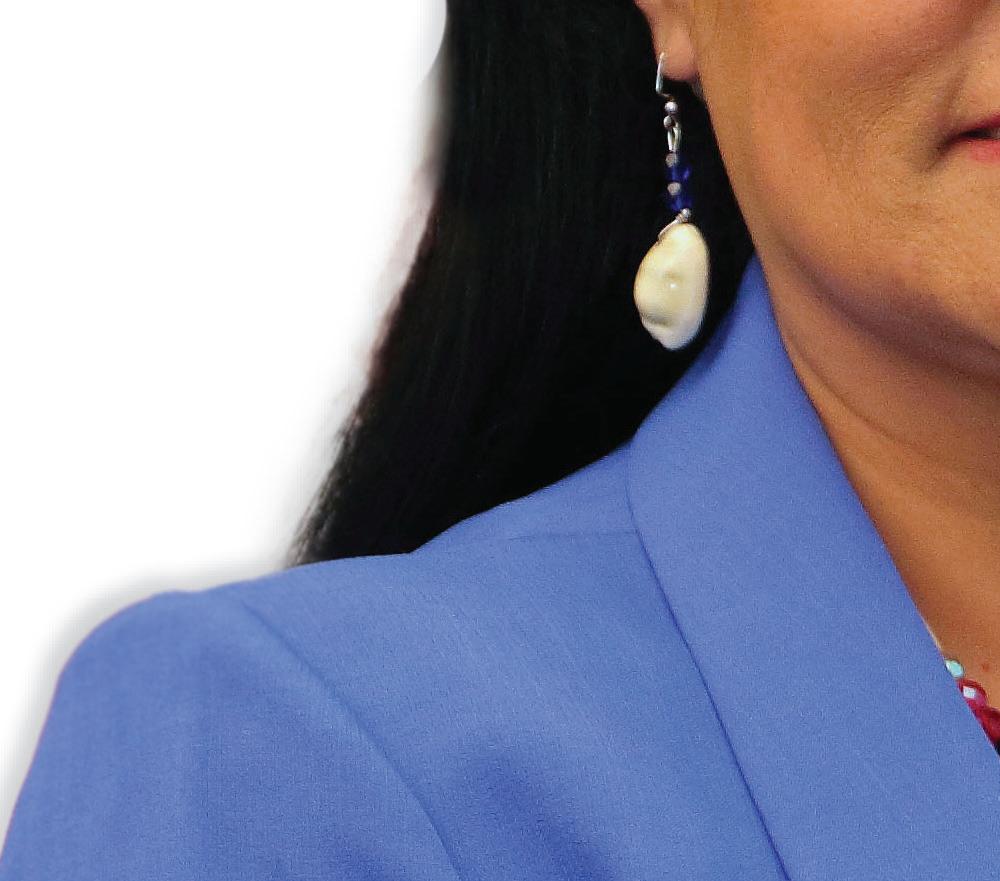


GAMINGAMERICA | 25 NIGC | GAMING AMERICA
Jeannie Hovland, Vice Chair
E. Sequoyah Simermeyer, Chairman
THE WORLD CUP OF NEW YORK






Gaming America closely examines the bidding process to add a casino to the New York City cultural and entertainment landscape. Michael Hershman, CEO of the Soloviev Group, is also on hand to provide exclusive insight into his company’s bid.



26 | GAMINGAMERICA GAMING AMERICA | NEW YORK
New York City calls to tourists from many iconic destinations. Times Square, Broadway, Central Park and the Statue of Liberty all welcome visitors with open arms. The New York City skyline is one of the world’s most recognizable architectural triumphs, but is the Big Apple missing something at its core? Though the Empire State currently houses two ‘racinos,’ in Queens and Yonkers, New York City has yet to add a world-class gambling establishment to its list of famed landmarks and attractions. Something to rival neighboring Atlantic City – or even Las Vegas.
But start spreading the news: there’s been an approval of three downstate casino licenses. Now property developers and casino operators have a creative, economic and surprisingly political challenge as they submit their $500m bid proposals. Many may enter, but three will win, in this casino battle royale.
WHO WANTS TO BE A PART OF IT?
In early January, the process began. A 10-year prohibition on Downstate gaming expired and at least a dozen companies are bidding for the chance to put their individual properties – and casinos – on the map. The initial casino licenses will run from 10 years to 30 years, based on the investment of the winning bidder. To find out more, Gaming America spoke to Michael Hershman, CEO of the Soloviev Group, who is partnering with the Mohegan Tribe – with a view to scoring one of the coveted casino licenses for a property that’s ready to go in Midtown East.
Hershman began, “We own a piece of property on 1st Avenue between 38th and 41st Streets. It’s right on the East River, two blocks from the United Nations. It’s the largest piece of undeveloped land in Manhattan, and it is currently zoned for both residential and commercial. It’s shovel-ready, if you will. We can begin building as soon as we’re awarded the license.”
Only three licenses will be granted, of course, and several large gaming industry players have already thrown their hats



into the ring. So Hershman’s confidence is commendable but the process is far from a foregone conclusion. Wynn Resorts and Related Companies have bid to develop an up-and-coming plot of Hudson Yards land, also located in Midtown. Las Vegas Sands is hoping for a casino at the site of the Nassau Veterans Memorial Coliseum on Long Island, though this will mean potential visitors will have to leave the bright lights of Manhattan. Billionaire and New York Mets owner, Steve Cohen, plans to work with MGM to put a casino in Queens next to the Mets' Cifi Field. Thor Equities Group Founder Joseph Sitt has also partnered with Saratoga Casino Holdings and the Chickasaw Nation to build a casino even further afield, amid Coney Island’s vintage amusements.
Bally’s Corporation, however, has revealed plans to turn a golf clubhouse owned by the Trump Organization into a casino in the Bronx. A deal occurred in December that gave Bally’s control of 17 acres of the 192-acre Trump Golf Links and Ferry Point. The project is valued at around $2.5bn and will include the removal of the large ‘Trump Links’ sign on the course, but only if it wins a license. An official with Bally’s told the New York Times that “any company’s association with the Trump name is likely to kill an
otherwise viable casino bid.”


Another contentious proposal comes from SL Green Realty Corp, which currently owns an office building at 1515 Broadway – in an area better known as Times Square. The company plans to turn eight floors in an existing 54-story tower into a casino with Caesars Entertainment. Times Square is often seen as the center of the New York City universe, with approximately 330,000 people passing through daily; to some this could be the obvious spot for a new casino.
The existing racinos could, though, be considered frontrunners in this exciting process, as granting licenses to them would simply raise their existing gambling options, rather than require the city to go all in on a new locale. Hershman said of the competing bids already on the table, “We’re up against some of the most powerful and some of the most formidable people in the state. So I call it the World Cup of New York, this process. I very much respect our competitors.”
MAKING A BRAND NEW START




Hershman has already spoken highly of the Soloviev Group’s partnership with Mohegan. “We like their style, frankly. We like their success,” he said. “They are the largest casino owners in the Northeast with many of their players coming New York, Connecticut, New Jersey, Pennsylvania and elsewhere. But what we particularly like about them, and what sold us on them, is their commitment to social responsibility and giving back to the community, which is very much in line with our thinking. We want to make this an entertainment district for the local community, not only for visitors, but for those that live in the area.”
The Soloviev Group has plans for not only a casino, but for an entire project it is calling Freedom Plaza. Reportedly, the casino itself would be less than 20% of overall land usage. “We have right now approved zoning to build 2.8 million square feet of space. We would dedicate part of that space to the casino hotel. About four acres would be dedicated to a park for use by the community. We would also build a museum that would be dedicated to the promotion of democracy,

GAMINGAMERICA | 27 NEW YORK | GAMING AMERICA
MICHAEL HERSHMAN
Soloviev Group CEO
freedom of the press, human rights and freedom of religion.” As the Soloviev Group is approved for both commercial and residential buildings, two residential buildings will also be in the works as Freedom Plaza’s new neighbours. Hershman added, “Part of those buildings would be for affordable housing, which is in very short supply here in this city.”
Though the Soloviev Group does have a hospitality and retail division within the company, this would be its first diversification into the gaming industry. Hershman said of the transition to potential casino ownership, “We own hotels, restaurants, a winery and other entertainment sorts of businesses. And we just thought a casino would be a natural extension for our entertainment division.” Hershman also stated that the area where the incipient property lies is “not overly populated” by retail, restaurants or other amusement, which a casino on Freedom Plaza aims to deliver. “We’d bring some retail and restaurants to an area that sorely needs it and also hotel rooms. Because of the proximity to the United Nations, there is always a need for more hotel rooms in that area.”
Hershman was resolute in the project’s






community-building approach. He clarified a previous comment about how the development could create 2,000 new jobs. “Now we’re estimating, as we get a little bit more involved in responding to the request for applications, we believe we will create between 4,000-5,000 full-time positions.”


IF A CASINO CAN MAKE IT THERE…
























However, any casino looking to win one of the three licenses will need approval not only from New York City officials and state regulators, but also local committees, institutes and residents near the proposed locale. There is a balancing act between attracting tourists and coexisting with established communities, and the new casinos will need public support to truly be successful. Vocal opposition by local committees could stop a casino bid in its tracks.


The application procedure has been designed so that for each casino bid, a local Community Advisory Committee must be formed. Committees will have six members, including the Governor, Mayor and local State Senator. The casinos must pass a two-third vote in favor of their bid before moving onto regulatory consideration. Several casinos







have seen both great shows of support as well as opposition – often within the same communities.
The New York State Latino Restaurant, Bar & Lounge Association (NYSLRBLA) is enthusiastic for the proposed SL Green and Caesars casino in Times Square. NYSLRBLA President Jeff Garcia said, “Times Square is the right place for New York’s next gaming destination, hands down. It’s great not only for the Times Square area but for the city as a whole. We believe the increased tourism is going to directly benefit small, minorityowned businesses across the five boroughs.”
However, the impact of a Times Square casino has not been positively perceived by the theater district. A new organization, started by the Broadway League, aptly titled the “No Times Square Casino Community Coalition,” includes a local church, a bus association, a tenants’ association and businesses that have previously been dedicated to serving the area’s patrons of the arts. Max Klimavicius, owner of iconic, 100-year-old Broadway-linked restaurant Sardis, has said, “A casino in Times Square has the potential to jeopardize the character of the theater district and ultimately the fate of its restaurants.”








28 | GAMINGAMERICA GAMING AMERICA | NEW YORK

Before the Covid-19 pandemic, Broadway and off-Broadway theaters in New York provided a historic, stable boost to both the city’s economy and culture. Charlotte St. Martin, President of the Broadway League, added, “We are just coming back and getting healthy, and we believe that a casino will damage that character and damage [theater] attendance.”

City & State New York reported that a coalition has formed to petition for Coney Island to win one of the potential licenses. The petition in question includes a line saying, “As a Southern Brooklyn resident, I support creating good jobs and new economic growth by establishing a new casino and entertainment district in Coney Island.” By April 2023, it had received over 3,000 signatures. Yet Coney Island residents, part of Community Board 13, held a meeting




where all present were in opposition. One member commented that they had not heard from a single person who had signed the petition in favor.




And the list goes on... Hofstra University has also greatly clashed with the idea that a new casino could improve its setting. A letter from the university trustees explained that 40,000 students, from preschool age to graduate studies, attend schools in the Nassau Hub, and that a casino would be ‘inappropriate’ for the demographic. The letter said neither the students nor suburban communities should be “exposed to the increased traffic congestion, crime, economic harm to local businesses and other negative impacts that a casino development would likely bring.” Long Island University and Nassau Community College would rather work together with its potential new


casino neighbor, Las Vegas Sands, to create a new hospitality management program for interested students.


Opposition also comes from casino operators in New Jersey (although this is rather predictable). The East Coast Gaming Congress discussed the potential adverse effects of New York casinos, including a loss of up to 30% of Atlantic City casino revenue due to competition with the allure of the Empire State. Upstate New Jersey and Downstate New York may find their residents wanting to gamble under the bright lights of New York City rather than Jersey’s premier gambling destination. This has made Hard Rock International’s Chairman Jim Allen nervous about the brand’s Atlantic City casino, even though Hard Rock is expected to announce an application for a New York City casino license as well.

30 | GAMINGAMERICA GAMING AMERICA | NEW YORK
Looking to the cultural benefits of the process – perhaps acknowledging some of the anti-casino sentiment – Mohegan and Soloviev have worked with The New York State Restaurant Association (NYSRA) to create the Mohegan Momentum Partnership Program for the surrounding local businesses in Midtown East. The program will support hospitality members by offering gaming-based rewards to future guests of the proposed Freedom Plaza when they patronize local shops, restaurants and businesses in the city.

Melissa Fleischut, President and CEO of NYSRA, said, “This program goes beyond traditional incentives and investments. Local restaurants will have unprecedented access to a larger customer base, prosperous partnerships and brand awareness exceeding what many owners would be able to achieve
independently.” Hershman stated in a press release about the program that its mission is to “address vital community needs, which are being communicated in meaningful conversations with local stakeholders.”
IT’S UP TO YOU, NEW YORK, NEW YORK



Each potential developer has listed the creation of revenue, jobs and exciting attractions as reasons to let their casinos take root and flourish, but the surrounding communities must be convinced. The Gaming Facility Location Board has released a document stating that the organization “expects to hear a variety of viewpoints from communities potentially impacted by proposed projects.” The 70-page document, published in January this year, also says that the board “welcomes” local and community
input, and “will consider all public comments received during the process.”




Hershman’s time with Gaming America ended with the CEO full of confidence and hope for Soloviev and Mohegan’s Freedom Plaza. “We, like everyone else bidding on this project, are in the process of working with building architects, landscape architects, and land use attorneys to finalize the designs and plans. And we look forward to what will hopefully be a fair process of judging by the state authorities and the city authorities. But I do believe that, if the license is awarded on merit, we have the best site and the best plan.”
Just like the World Cup, the new Empire State casino must play the game, advance from the group stage and win outright before it can truly call itself the best.




GAMINGAMERICA | 31 NEW YORK | GAMING AMERICA
GREAT GAMES TRANSCEND
Derik Mooberry, CEO of Zitro USA, speaks about innovation in the US market vs global success.
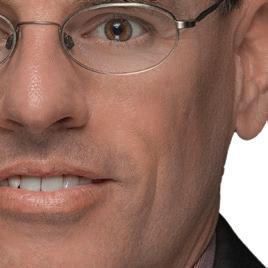


Thanks for joining us! How has your first year gone as CEO? And what has your proudest achievement been so far?
A year just zips by pretty quickly. It’s been an exciting year and it’s been a time of growth for us. I think there were four employees when I started, and we’re about 20 now, so we’ve had quite a bit of growth here in the US. In all honesty, that’s probably our biggest achievement. Before you can have great success, it really starts with the foundation of building a team. We’ve assembled a great group of people that have joined us here in the US, and we’re starting to get our products out into a large number of different locations and casinos throughout the US. We think we have just a tremendous future in front of us.






I think casino operators love choices. They love having lots of opportunities to buy from different people. They love the fact that people are innovating and that’s exactly what we’re doing here at Zitro. We’re coming out with a lot of exciting new products. We’re different from a lot of what I would call smaller vendors – and I say ‘smaller’ because we’re small here in the US, but we’re really not small globally. Around the world, we’ve got over 1,000 people. We operate in over 60 jurisdictions around the world, and in the US people are just getting to know who we are. But I think people are saying, “This is a company who can innovate. This is a company who has exciting products.”
What do you think the most successful game has been in the US market so far? And do you know what makes it so popular?



For us it’s pretty simple. We’ve got a standout game. It’s called 88 Link Lucky Charms. It’s been our best game and it’s performed extremely well – in some cases up to two times house average at casinos, – which is just exceptional. It’s usually the game we lead with. Every time we go to a new customer they say, “what game should we take from yours, because you have a vast library of products?” We like to go with one we think is shown to be a proven winner – and the 88 Link Lucky



































Charms has been exactly that. I think it combines a lot of features players like. A lot of popular games now obviously have the Asian graphics that it does. It also comes as a multi-game with four games built into it, usually in the US.
We choose just one of the four to launch with, but the four games are slightly different graphically; similar mathematically but a little different. Graphically, it’s got a Bet Up feature on it where the more you bet you acquire more of the symbols, giving you more chances for bigger and better bonuses. So when the player’s on that lucky winning streak and they feel like betting a little more money, it gives them the opportunity for that as well. It’s got the ever-popular – what we call – Bonus Link feature, which is the bonus round that creates all the excitement for them. We think it’s got a lot of common things players like and I think that’s why it’s resonated. Here in in the US, literally almost everywhere we’ve done great.
Do you think there are gaming trends in the US that differ from markets in other countries? You mentioned Asian graphics being popular. Is that a general 2023 trend rather than US?
DERIK MOOBERRY Zitro USA CEO


I’m going to answer this in two different ways. I think great games transcend the world – I really do. I think a game that’s great can be popular almost anywhere in the world. I think if you’ve found that great combination of math and graphics, and found a really intriguing way to entertain


















































32 | GAMINGAMERICA GAMING AMERICA | DERIK MOOBERRY
the player; I think that can transcend regardless of where you are in the world. However, the flipside to that is there are certainly little differences you see around the world, in terms of player characteristics. The average consumer can vary differently, even here within the US, forgetting the rest of the world. The gambler on the Las Vegas Strip is slightly different, obviously, than the gambler who might play at one of the Native American casinos. The person who’s coming to the Las Vegas Strip is coming for a three-to-four-day experience.
They’ve got a budget they’re trying to maintain over those three to four days. They’re trying to maximize their time on a device during those play periods. The person who’s coming to more of what I would call a localized casino has probably a smaller, finite amount of time, right? They’re coming in for maybe an hour or two – maybe with some friends – looking to have some enjoyment. Ideally, in those kinds of situations, the player probably either wants to win big or go home. Because their time is a little different: it isn’t a one size fits all. But I do find that there are some trends, though. Great games do seem to be great almost regardless of where they are. That could be throughout places here in the US or it could be internationally. We’re very popular in Mexico and a lot of the Latin America markets. Obviously, Spain is a fantastic market for us as well. So we’ve found great games work all over.
Which states are you live in right now? Have you seen any differences between those states?
We’re live in four states: California, Oklahoma, Florida and Wisconsin. The gambler profile is different, even among those states, because there’s different products in those states. You have different demographics, different regulations and different regulations on how the products work. You do see some slight differences there, but not anything tremendous so far. This is really kind of just the beginning for us.
We hope to be in probably anywhere from 10 to 15 states by the end of the year.
We have approvals to enter a bunch more very soon. You’re going to start to see Zitro products in a lot more locations around the world or around the US in particular.
We saw a recent partnership with KGM, which will put you into Connecticut, Ohio and New York. Is that correct?
Yeah, we will. They’re our distributor partner on the East Coast. When you’re a small manufacturer like us in the US, sometimes you need partners to help leverage your success. KGM is one we just recently announced a partnership with and they have deep roots in sales force already in place in a lot of those East Coast locations. We look to leverage their infrastructure, including their service technicians and their sales personnel to help launch Zitro products in a large number of states on the East Coast.
Do you know when that will be?
We intend to launch our first games with them as early as May (at press time).
We’ve seen a lot of focus on video bingo and video slots. Is that your primary focus in general in the US?
Obviously, video bingo is our roots. That’s how the company started; that’s what got us going years ago. We’ve transitioned to video slots as well; traditional, as we call them, Class III gaming devices . The third segment we’re also in is the digital space: online gaming. We’re a player in that segment as well, in terms of what we’re focusing on. Though, here in the US, we’re really focusing just on traditional Class III slots. The video bingo products we leave for more of the
Mexico market and some of the other Latin American markets. But what we’re really focusing on is trying to grow our land-based slot business here in the US. Then there’ll be a point in the future, once we get the land-based slot segment established, when we’ll look to focus on a digital push as well. That way we can give the player that omnichannel experience where they could play the best of Zitro games, both online and in a land-based casino.
We’ve seen your slogan for Zitro saying, “Winning is not about luck.” Can you explain a little bit about that and how you keep people engaged with games beyond just that lucky feeling? The message there is two-fold, in my opinion. It’s about the consumer, them picking a machine they find enjoyable and us providing the right entertainment experience for them, which keeps them coming back again and again. I think, “winning is not about luck” is also about Zitro the company, too. Success comes through a lot of hard work, a lot of dedication, a lot of focus on customers, casino operators and ultimately the end consumer as well. If you do the right things, you will ultimately end up winning. It takes a lot of hard work and dedication to do that. That’s the message for us and we think it resonates well for both us as a company, and also the consumer as well.
It’s a customer service ethos as well as a way to play the games? Absolutely. And that’s the message we want to tell. If we execute on those fronts, I think the growth story here in the US is going to be something we’ll be talking about for some time.
GAMINGAMERICA | 33 DERIK MOOBERRY | GAMING AMERICA
"I THINK CASINO OPERATORS LOVE CHOICES. THEY LOVE HAVING LOTS OF OPPORTUNITIES TO BUY FROM DIFFERENT PEOPLE."
HOW OPERATORS SHOULD PROMOTE RESPONSIBLE GAMING
William (Bill) J. Pascrell, III, Esq. writes about how the gaming industry can research, educate and collaborate to promote better gaming habits.
New opportunities for gambling arise daily as new states legalize fixed-odds horseracing, esports, brick-and-mortar casino gaming, online casino gaming and sports betting. With these opportunities expanding throughout the country, it’s more important than ever that gambling companies educate their customers on best practices for responsible gambling. Regulatory boards, federal and state governments, and even consumers themselves, have a role to play in ensuring the safety of gamblers. However, no group bears a greater responsibility than the operators themselves.
Operators have full control over their platforms and, as such, countless adjustments can be made to reduce the likelihood and impact of problematic gambling behavior, from player safeguards to incentive limitations. Here are some of the best ways that operators can promote RG to their customers:
FUND MEANINGFUL RG INITIATIVES
Operators should fund responsible gambling initiatives that are exploring new ways to reach gamblers and those in high-risk groups, like college athletes. For example, Entain Foundation US, for which I serve as a Trustee alongside Martin Lycka, SVP for
American Regulatory Affairs and Responsible Gambling at Entain, and former New York Giants wide receiver Amani Toomer, sponsors or partners with a range of responsible gambling organizations. These include Epic Risk Management, which facilitates “lived experience” responsible gambling classes across the country; Kindbridge, an independent virtual clinic that provides mental health services to people suffering difficulties related to gambling and gaming; and the NFLPA Professional Athletes Foundation, a provider of financial assistance and counseling for former NFL players, to create, market, and launch live and virtual educational programs for NFLPA members.
SUPPORT ACADEMIC RESEARCH
Academic research must play a central role in addressing problem gambling, ensuring comprehensive self-regulation on the part of gambling companies and effective gambling regulations. To that end, Entain Foundation US invested $5m in a multi-year partnership with the Harvard Medical School Faculty at the Division on Addiction, providing Harvard with access to anonymized player data across a range of our brands. We also partner with the UNLV International Gaming Institute to provide information to legislators and
regulators about sports integrity, youth gambling impact, illegal marketplacee and Americans’ perception of gambling.
INDUSTRY COLLABORATION
On September 22, six of the largest online gaming operators in the US – Bally’s, BetMGM, DraftKings, Entain, FanDuel, and MGM Resorts International – came together to agree to the first industry-led responsible gambling standards in the country. Fanatics, Hard Rock Digital and PointsBet have since joined the group.
The coalition of operators defined 12 principles that include commitments to
34 | GAMINGAMERICA GAMING AMERICA | WILLIAM J. PASCRELL, III, ESQ.
"THE BEST INTEREST OF GAMING COMPANIES IS TO ENSURE THE INDUSTRY IS PROPERLY REGULATED."
prevent underage and excluded individuals from participating in any form of gaming; to provide customers with informed choices about gaming through easily understood responsible gaming tools, and to continuously conduct research to track the impact of this collaboration. Here’s an abbreviated version of the 12 principles, the full version of which can be read here.
• We take active steps to prevent underage and excluded individuals from participating in any form of gaming within our products.
• We help patrons make informed choices about their gaming.
• We support the adoption and effective promotion of a unified nationwide responsible gaming toll-free helpline.

• We abide by applicable standards of socially responsible advertising.





































• We provide our customers with tools to play responsibly.

• We abide by all self-exclusion rules and regulations, and provide resources to individuals who make the choice to self-exclude.
• We encourage patrons to set a budget they can afford and never play beyond their means.
• We encourage patrons to set time and financial limits on their gaming – and stick to them.

• We believe in a shared-responsibility approach to addressing problem gaming. We work with policymakers, academic experts and researchers, problem gaming treatment organizations, advocacy groups, our partners, and our customers to promote responsible gaming and address problem gaming.


• We support funding for evidence -based problem and responsible gaming research.







• We provide employees with responsible gaming training upon hire and regularly thereafter.
• We are committed to evaluating and continuously monitoring our responsible gaming programs and initiatives.
I believe strongly in the work that these operators are doing to promote responsible gambling. While the 12 principles don’t cover every possible aspect of an operator -led RG program, they lay out a strong foundation on which the gambling industry can build an effective and unified front to tackle problem gambling, and protect their customers from harm. As noted by Martin Lycka, the principles are “truly a first for this market and a significant step for addressing problem gaming on a consistent basis.”
EDUCATION
Education continues to serve as a crucial component of responsible gambling programs- not just for problem gamblers, but for higher-risk groups like athletes and the economically disadvantaged. For example, Entain Foundation US partnered with Seton Hall Law School to establish an annual multi-day Gaming Law, Compliance and Integrity Bootcamp, to ensure that industry professionals are equipped to incorporate responsible gambling into their everyday work.
Further, we sponsor former NBA All -Star Charles Oakley’s “Oak Out Hunger” community project, which emphasizes
the importance of responsible gambling to impoverished, underprivileged communities in cities across the US. The project promotes Gamble Responsibly America, a mobile app that educates users on safe gambling habits and Wager Score, a platform that rewards responsible gamblers by converting 1% of every dollar bet into charitable tax-deductible donations for social causes.
IN CONCLUSION






















































While the term “responsible gambling” is well known and understood, I often refer to the practice as “sustainable gambling.” Here’s why: if US operators don’t undertake a serious, industry-wide focus on protecting their customers, the industry will be plagued by the same crises that Europe has faced in recent years. The very sustainability of the gambling industry is dependent on operators’ dedication to responsible gambling. It’s in the best interest of gambling companies to ensure the industry is properly regulated, that customers are given the proper tools and education to avoid problematic behavior, and that resources are dedicated to the treatment centers, counselors and support groups that are on the front lines of combating problem gambling. With this approach, we can ensure a healthy customer base, a reasonable regulatory environment, and bright future for all operators.
William J. Pascrell III, Esq., or BPIII, is a Partner at Princeton Public Affairs Group and a Trustee for Entain Foundation US, a first-of-its-kind non-profit organization dedicated to promoting responsible gambling, sports integrity and corporate compliance in the US. Entain Foundation US also sponsors a variety of information and education programs on problem gambling for professional athletes, collegiate athletes, coaches and teams at 40 US colleges and universities and several associated leagues. Globally, the Entain Foundation has committed more than $100m to RG programs over the next five years.

GAMINGAMERICA | 35 WILLIAM J. PASCRELL, III, ESQ. | GAMING AMERICA
WILLIAM J. PASCRELL, III, ESQ.
Princeton Public Affairs Group Partner
THE CURSE OF THE SULTAN
Gaming America regular contributor Oliver Lovat is back! Here, he discusses The Dunes, the Las Vegas Strip’s 10th ever resort to be built...
The Dunes opened in 1955, in the heat of the first phase of the Las Vegas Strip’s growth, and marked the end of that cycle as the first full resort to be imploded. It’s 38-year run was short, even by Las Vegas standards, but certainly not without event. On the 30th anniversary of its demise, we assess the impact of The Dunes and its legacy to casino management.
EARLY YEARS
The late May opening of The Dunes deliciously coincided with Life Magazine's infamous cover story, “Las Vegas – Is Boom Overextended.” The $4m, 200-room hotel was easily identified by designer Kermit Hobson Hawkins' 38-foot Sultan (officially titled “The Sheik”) that cast a knowing eye on all who entered the casino.
The Sultan’s presence was not a lucky one and the resort almost immediately failed, with the casino making a particular loss. The owners of The Sands assumed the running of the property, but within short order, they threw in the towel at the loss-making joint and the bankrupt property was sold at auction. Numerous investors came in and out over the following period, but the constant was the property President Major Riddle, a noted businessman and gambler, allegedly
highly connected to gangsters in Chicago. Alongside Riddle came a team of operators including Charlie Rich, George Duckworth and St Louis’ illegal betting king, Sid Wyman, who ran the casino. It was in 1961 that The Sultan’s Table opened as the finest restaurant in town, with two grand pianos and violins providing a unique ambiance.
The property also added a convention center, a 24-story Diamonds of The Dunes guestroom tower, health club, café, more restaurants and a nursery, where patrons’ kids could hang out. It was in this expansion that the famed Dome Under the Sea opened. Incomparable among the gourmet rooms of the period, diners ate Sole Belle Meuniere and Lobster Thermidor (both $7.50) in a specially built dome, entertained by a golden-haired harpist, Kippy Lou Brinkman.
The Sultan statue was moved from the entrance to the newly built Emerald Green golf course and was replaced by Lee Klay’s Dunes Pylon which, at 180 feet, was the largest electric sign in the world. Property leadership was making all the right moves in turning The Dunes into one of the most desirable locations in town, attracting gamblers from across the nation, but the Sultan’s curse was about to strike.
Not a decade into the apparent success,
the property was acquired by Continental Connector Corporation. The new owner, a listed entity enabled by the Corporate Gaming Acts of 1969 to own casinos, was immediately investigated by the US Securities and Exchange Commission. Allegations of misreporting and unpaid taxes were made; indictments were to follow. Many of the owners, including Sid Wyman, had to sell up but were later acquitted of all charges, owing their freedom to one man: their lawyer, Morris Shenker.
CHANGING TIMES
Shenker wasn’t new to Las Vegas, straddling both sides of the city. On one hand, he parlayed with the well-healed business leaders and casino owners; but he was also, no doubt, familiar with the less salubrious operators, having represented many of those with connections to the city’s casinos, including at the Kefauver hearings into organized crime. Moreover, he was a close friend and lawyer to Jimmy Hoffa, leader of the Teamsters Union (and the central character in The Irishman), the pension fund which had financed many of Las Vegas’ early resorts, including The Dunes.
Despite one of the most rigorous of investigations in its history, The Nevada Gaming Control Board found nothing untoward and issued Shenker with a license in 1975, after his acquisition of controlling interest of The Dunes in 1973.
With Riddle still involved, “Uncle Sid” Wyman was hired again as a consultant and with Shenker’s decades’ long connections with gamblers and junket operators from the East Coast, The Dunes sought to reclaim its glory. However, the times were changing in Las Vegas. By the mid-1970s, the corporatization of Las Vegas had pushed out many of the first generation
36 | GAMINGAMERICA GAMING AMERICA | OLIVER LOVAT
" NONETHELESS, THE DUNES FACED THE SAME CHALLENGES THAT EXISTED IN OTHER PROPERTIES OF THAT ERA AND WERE NOT AN IMPEDIMENT TO THEIR SUCCESS."
of owners, but the Dunes remained as a favorite haunt of many of the old guys, even some those that featured in The Black Book.
The steady flow from Teamsters' loans was also coming to an end, as management of the unions, including the Culinary Union, which had committed to and then withdrew a loan offer to The Dunes, fell under increasing scrutiny. The Teamsters' loans had enabled much of Las Vegas’ early development – and every casino loan was paid back in full – but since corporatization, whereas Kerkorian (Flamingo, International and MGM), Bennett (Circus Circus) and Riklis (Riviera) had the ability to tap capital markets for development finance, with The Dunes’ complicated ownership history, this was more difficult. Indeed, the property struggled with cash throughout Shenker’s time, and the old gamblers who were part of the glory days began to falter and pass.




In 1979, The Dunes borrowed to add the South Tower, giving the property another 700 rooms in addition to the existing 600. The property was perfectly poised for the 1980s.


However, at The MGM Grand across the road, killing 85 people in a horrific inferno. The Dunes suffered the blowback, as visitation fell in the desert, partly due to safety concerns, but also due to the wider economic malaise in the US. Furthermore, the new casino offering that arrived in Atlantic City was geographically closer to The Dunes’ staple of East Coast junket players. It was the perfect storm for The Dunes.
Despite suffering a heart attack in 1980, Shenker held on (just), bringing in The Perlmans, who owned the hugely successful Caesars Palace next door. Riddle did not, passing in 1980. The final throw of the dice was led by Arthur Shenker, Morris’ son, who foresaw the trends coming to Las Vegas. He sought to move away from the volatile high-end play and declining pool of old gamblers, in what was now a highly competitive casino market. Instead, the plan was to cater to mid-market tourists on modest budgets, taking a leaf from Downtown, introducing fun-books and cheap food. At sidewalk level, the neon entrance of The Oasis Casino invited



pedestrians to come inside. The offering became cash generative to the resort, eliminating volatility and quadrupling play at the slots and video poker machines. It looked like The Dunes was finally turning a corner.



Despite the success of The Oasis, the Sultan struck again. The plan for cash customers at the front and junkets at the rear was blown apart in 1982, when Mexico devalued the Peso, leaving casinos with unpaid markers; the Peso to Dollar was now worth about 20 cents. The Dunes was particularly exposed with 60% of the Mexican junket play.
By 1984, The Perlmans were done. Californian farmer and casino operator, John Anderson, acquired both their stock and that from the estate of Riddle. Anderson’s optimism that he could overcome the curse was unfounded.
Despite the positive performance of The Oasis, the wider business was not in sync and the company faced default on its debt obligations. The Dunes was out of luck, time and money. By December 1985, both
OLIVER LOVAT | GAMING AMERICA
GAMINGAMERICA | 37
Morris and Arthur Shenker had succumbed to the curse and were out of the Dunes after Anderson led the company into bankruptcy.
AN UNHAPPY ENDING

Just days later, on January 1 1986, the once-prominent Sultan, now at the rear of the property adjacent to the I-15, caught fire and was destroyed from the torso upwards. His curse continued. Hilton, Steve Wynn, Sheldon Adelson, Bill Bennett and Kerkorian had all looked at acquiring the property, but ultimately the bankruptcy court sold The Dunes in 1989 to Japanese company Minami Shoji for $157.7m. The Gaming Control Board had concerns over CEO, Maseo Nangaku, only awarding him a temporary license. His full license was not approved until 1991, by which time The Dunes was in financial trouble, again.
This time, buoyed by the success of The Mirage, Wynn could see the potential that The Dunes’ 163 acres presented and bought the asset for an undisclosed amount. The Dunes was closed and finally imploded in October 1993. The curse was finally vanquished and today, on the site of the Dunes and the golf course, stands The Bellagio, Aria, Vdara, Park MGM, New York-New York and The T-Mobile Arena, with a present land value of billions of dollars.
THE SULTAN’S LEGACY
For those of us who study the evolution of the casino resort and the history of Las Vegas, there is much we can learn from The Dunes’ story. On one level, the purported purpose of The Dunes’ original operations was not merely to offer a structured return on investment to the shareholders, but allegedly to maintain financial support to undeclared beneficiaries.
For decades, this put successive management teams in an invidious position: to operate the asset commercially and take action to end the alleged illicit activities, or to tacitly acknowledge the status quo, thus denying the management the required capital to reinvest and maximize the full potential of the wider landholdings. This was the real curse of The Dunes.
Nonetheless, The Dunes faced the same challenges that existed in other properties of that era and were not an impediment to their success. Rather, with the benefit of hindsight, the failure of The Dunes was down to a single fundamental problem – for a long period of its life, the property was operated with the absence of a coherent strategy. The golden age of The Dunes was undoubtedly the period of the 1960s, when Riddle and Wyman oversaw the property; their customer was them, first and second-generation Italians, Jews and Greeks in their middle age, who had a penchant for gambling and the finer aspects of post-war American life. As owner-operators, they shaped the programing of the property to meet their needs, which were also the needs of their customers.
was the sole advocate in the boardroom to the possibilities of what Las Vegas could become.




Yet operating in this field requires both operational and financial discipline, a point understood by Bill Bennett at Circus Circus, who led in this market, but not one that proved evident at The Dunes. Its aging leadership had eyes on a period and a customer, that had long passed. The Dunes was born in a period of market over-expansion and operated despite ongoing challenges; when it looked like it was shaping up for a new generation, it fell under the burden of its legacy. Finally, it was imploded and buried under a dancing fountain on a lake. All before it turned 40.
There is little doubt of the curse of The Sultan.
The further challenge facing The Dunes
their eyes on the same customers, but When those properties reinvested, part-owner of the Dunes in the early became the Hilton) and MGM Grand, The Dunes did not have a

The further challenge facing The Dunes was that The Desert Inn, Sands, Riviera, Flamingo and Caesars Palace also had their eyes on the same customers, but provided greater opulence and amenity. When those properties reinvested, elevated and expanded, along with the arrivals of Kerkorian (who was a part-owner of the Dunes in the early days), The International (which became the Hilton) and MGM Grand, The Dunes did not have a response until it was too late.
Without a clear customer to obtain competitive advantage once


offering was perhaps the only possible understood by Arthur Shenker, who
Without a clear customer strategy or competitor strategy, and without the internal capabilities to obtain competitive advantage in the market where it was positioned, the shift to a discounted offering was perhaps the only possible strategic response. This was fully understood by Arthur Shenker, who
38 | GAMINGAMERICA GAMING AMERICA | OLIVER LOVAT
Oliver Lovat
AGGREGATION POWERING US GROWTH
The market is now flooded with a plethora of game suppliers and an unprecedented number of games, making it a challenging process to keep up with emerging trends. Fortunately, aggregation platforms provide a solution by offering access to the most in-demand studios, allowing operators to cater to the diverse needs and expectations of their players with a wider selection of games.
North America also presents a demanding regulatory landscape for studios that attempt to navigate it alone and directly integrate with operators. The varying regulations at the state and provincial level create a fragmented environment, posing significant and often intimidating obstacles. Staying compliant across multiple jurisdictions while producing high-quality content is a costly endeavor. This is where aggregators play a crucial role in holding iGaming licenses and maintaining large teams dedicated entirely to compliance. For studios aiming to offer their content to players across the US and Canada, it is essential to ensure a quick and streamlined entry into the market – across multiple states and provinces with a single integration. This task would be an enormous challenge for even the most ambitious studio operating independently.
When it comes to content, the industry’s leading aggregation platforms offer all the
types of games that are popular with the North American market. These include slots with famous local themes and simple mechanics, popular land-based games adapted for iGaming and table games, with a particular emphasis on poker; as well as instant win games that are essential for an iLottery portfolio, in addition to a host of engagement tools that add value. Available through a single integration, it’s little wonder that operators across North America are opting to hit the market through this route, rather than opting to embark on a host of time and resource-heavy processes.
Operator appetites can be fulfilled by comprehensive aggregation portfolios, which offer a wide range of games that cater to players’ preferences, including exclusive and in-house content. Within a market where land-based casino environments are an inherent part of everyday culture, a focus on content ensures operators can offer
the content that North American players already are familiar with, as well as bold, forward-looking innovative iGaming solutions. The North American market continues to have huge scope for growth, and aggregation offerings can make sure a company is well-placed to succeed as more and more states open up to iGaming.

GAMINGAMERICA | 39 PARIPLAY | GAMING AMERICA
In recent years, operators across North America have noticed a shift in the landscape, with the realization that having their own Remote Gaming Server and direct integrations may no longer be profitable, writes Shivan Patel, VP North America, Pariplay.
Shivan Patel, Pariplay, VP North America
NEW APPROACHES ON OLD CLASSICS
Yugo Kinoshita, Global CEO of Aruze Gaming Group, speaks to Gaming America about innovation and trends on the casino floor.
How does Aruze reflect on the IGA show and what were the major trends to come out of the tradeshow?
We definitely saw an effort across every vendor to pay homage to the casino classics players have come to love. Across the floor, there are new iterations of classic games — a great example of this is our Shoot to Win Craps Lucky Roll. Craps is a casino
staple, but not every new casino-goer wants to risk being called out for how they throw dice. Shoot to Win Craps provides new and younger players with a fun and easy way to learn the game. Innovation by taking classics and providing new twists, either through technology or gameplay, will continue to drive the industry forward. At IGA, we continue to see the seeds of innovation morphing traditional classics.
Is the case for casino floor diversity the same as the concept for a ‘business case for diversity?’
What we mean by diversity on the casino floor is a diverse set of options that appeal to everyone — legacy and new players alike. Video slots once played this role, innovating on three-reel mechanical slots, adding a new element to the casino floor.

40 | GAMINGAMERICA GAMING AMERICA | YUGO KINOSHITA
Now, we’re innovating on those further to draw in new players and provide new experiences. We created games like Rock, Paper, Scissors Instant Win and Go Go Claw in this same spirit of innovation. We don’t imagine them replacing video slots, but simply adding a new experience to the exciting world of gambling — one that may appeal to a rising demographic.
What is the balance you aim to strike in terms of existing titles for loyal players and new titles for newer players?
The balance can be tricky — it’s not as if there’s a perfect formula, as every casino caters to different audiences. We trust casino operators to strike this balance based on their demographic. Classic games draw in legacy players, while new titles attract different player demographics that typically skew younger. The casino’s player demographic will determine the casino floor portfolio. From Aruze’s perspective, we are trying to provide twists on both classic casino favorites and new innovative titles that today’s players will love.
How important is innovation within the casino floor?
Innovation is one of the most important tasks for providers and operators right now. There are two iterations of innovation: innovation
in our technology, and innovation in how we serve players and operators. We strive to provide both at different phases, bringing the best possible experiences for players and operators alike. Players cannot live on slots alone — and casinos cannot live on just one type of player. If operators never offered ETGs, video slots, or even venue upgrades, would casinos be able to attract players? It’s hard to say. We know everyone likes new experiences, which makes innovation one of the key tenets of survival.
Is there ever a danger of innovating for innovation’s sake and this not necessarily benefiting the casino?
As with all innovation, if it’s not warranted or over-innovated, you run the risk of decreasing the recognition and quick-to-learn elements that make casino games popular. Sometimes it doesn’t work — either it’s too early in the timeline or it’s too complicated for players to adopt. As innovators, it’s our responsibility to navigate that. The idea of “don’t reinvent the wheel” comes to mind — keep the lovable elements and improve them with new, equally enjoyable changes. Leverage new technologies to keep gameplay intact but provide a different experience. You don’t want to isolate your audience and scare them away, especially when you’re trying to make something fun and exciting for them.
Where do you see the next major trend coming on the casino floor?
The next major trend is impossible to predict, but I think it will follow the major tenets we’ve talked about already — new approaches to old classics, for both arcade and casino games. Imagine your favorite arcade game with an exciting, new betting element; we did it for Go Go Claw, and we want to see even more iterations of these classics across the floor. We also want to see new takes on classics — what can we do to add even more excitement to our favorite games? We can’t wait to see what the industry comes up with.
What does Aruze have in store for the rest of 2023?
YUGO KINOSHITA Aruze Gaming Group Global CEO
We’re going to keep innovating and improving our suite of products, delivering the high-caliber fun we’re known for. We want to keep our momentum and work with our customers to provide them the best possible products for their casino floors.

GAMINGAMERICA | 41 YUGO KINOSHITA | GAMING AMERICA
"THE BALANCE CAN BE TRICKY — IT'S NOT AS IF THERE'S A PERFECT FORMULA, AS EVERY CASINO CATERS TO DIFFERENT AUDIENCES. THIS BALANCE IS BASED ON THEIR DEMOGRAPHIC."
DIFFICULT BUT CRITICAL
Gaming America contributor Declan Raines , Head of US Gaming at TransUnion, discusses why reducing abandonment during onboarding is hard but vitally important.

Friction-free onboarding helps online sportsbooks retain players and boost revenue in a highly competitive market. When mobile sports betting launched in New York in January, thousands of bettors raced to online sportsbooks. Unfortunately, on some platforms, they experienced technical issues such as login errors, the inability to place a bet, make a deposit, cash out and more. These frictions in the player experience can lead to consumers abandoning one sportsbook for another. In today’s on-demand world, consumers expect fast, convenient and secure digital experiences in all their interactions, including mobile sports betting. They demand instant transactions, grow impatient when
filling out online forms, are hesitant to provide too much information and have no qualms about abandoning your site for a competitor.
Friction during registration deters players from continuing on your platform. However, online gaming operators must weigh offering a seamless onboarding process against the need for robust AML and KYC checks. Some operators may think a seamless player experience must come at the expense of fraud prevention, but with the right tools and strategies, online sportsbooks can find a balance between protecting against fraud, and ensuring a quick and seamless player experience.
What leads to player abandonment in online gaming?
Think about the last time you were using an online retailer. While shopping, you add a few items to the cart but lose patience when asked to fill in a large amount of personal information required to checkout. Deciding it’s too high, you leave the items in the cart and exit the site. Player abandonment is the same as exiting without paying for the items in your cart. The initial contact between a potential player and an online sports betting operator is crucial. If there are problems, the would-be player will likely abandon the attempt and move to another platform. Lengthy ID verification checks, unclear instructions, a reluctance to share too much personal information and technical glitches are just a few things adding friction to a player’s ability to place a bet.
Despite operators investing large sums of money toward driving new sign-ups to their platforms, player abandonment is estimated to be near 70% in the online gambling industry, despite hefty bonus offers. Mobile sports bettors typically visit with a specific bet in mind, which adds to their impatience with any roadblocks. If they cannot complete the process, they may miss the window to place the bet. For example, you’re getting ready to watch a football game and decide to wager on the game. You receive an enticing bonus offer from one online sportsbook, so you create an account. Because the game starts in a
42 | GAMINGAMERICA
ONLINE GAMING
Declan Raines, Head of US Gaming
GAMING AMERICA |
few minutes, if an authentication error or problem with your deposit occurs, you’ll likely abandon the process or try another operator because you have limited time. After a poor experience, a player’s probability of returning to the platform again is low, especially if they didn’t encounter friction with another sportsbook.

Fraud and friction
As online sports betting grows in the US, it’s attracted the attention of cybercriminals. TransUnion’s 2022 Global Digital Fraud Trends Report saw gaming fraud rise 33% in one year. Online betting platforms are attractive fraud targets because fraudsters target free money. Sports betting platforms must verify players’ identities and ensure they aren’t under-age, using stolen information, attempting to open multiple accounts or money laundering. Unfortunately, most authentication procedures add friction to the sign-up process to ensure security, making for a not-so-seamless experience if an error occurs or authentication fails. Consumers are willing to endure some
friction for security – 68% of consumers rank security as their top concern when creating an online account. With fraud growing in all industries, most consumers, especially younger generations, are cyber-savvy and understand the need for fraud protection. While players are willing to endure some friction for security, they still want a seamless and fast onboarding process. However, online sportsbooks still need to ensure the player attempting the account is a real person and that the information is accurate.
Preventing player abandonment
Every time a player leaves your platform, you lose a retention opportunity and must compete against other brands for the customer. Faster and simpler onboarding equals more players. There are tools and strategies to help make onboarding quicker, and smoother. Many vendors have access to deep and robust data to confirm whether the information provided to open a new betting account is accurate – use them. If the vendor doesn’t have access to public data, verifying a person’s
identity becomes more difficult. You need access to as much data as possible to have the best chance of reducing abandonment. For example, DraftKings improved its onboarding process by verifying as much information as possible before asking players to provide it. The platform often uses multiple databases to confirm players’ names, ages and last four digits of their Social Security numbers. DraftKings only asks players to submit the missing data. Identity verification tools can also automatically detect and fix data entry errors or typos, saving the platform from having to contact you.
Stay ahead of the game
A lot of money goes into acquiring customers, so every second counts. Every field in your registration form is essential to get new users to sign up for your platform instead of your competitor. Operators that strike the balance between security, speed and efficiency will see better returns on their marketing investment. Indeed, seamless onboarding and reducing abandonment are key components to success in this hyper-competitive market.
GAMINGAMERICA | 43 ONLINE GAMING | GAMING AMERICA
"THE INITIAL CONTACT BETWEEN A POTENTIAL PLAYER AND AN ONLINE SPORTS BETTING OPERATOR IS CRUCIAL."
NICHE SPORTS GO PRO
Gaming America sits down with Pro League Network’s Co-Founders
Mike Salvaris and Bill Yucatonis to discuss the advent of niche sports betting.
How would you describe Pro League Network and its ambitions?
Pro League Network (PLN) is a portfolio of fun and bettable sports that we either own or have produced and licensed from third parties. What we are trying to do is use these sports as a way of capturing what we see as latent gambling dollars; events that are on at times in the betting calendar when there's not a lot else going on. So whether that is during the week or during the day, or some evenings when there are no other professional sports, we see these fun, casual, bettable sports as a way of appealing to bettors; when there are not a lot of other conventional sports to bet on.
How do you identify the niche sports you think a lot of people want to bet on?
I think there's a casual element to what we identify. You don't have to know the intricacies of the rules or anything; you just need to be able to look at the competitors and feel confident about wagering. We account for affinity to the sport, as everyone

has had some experience with mini golf in their life. Additionally, we consider the professional athletes doing something that people do on the weekends as a driver of interest in the sport. It's a combination of science and art, but we feel very confident in the portfolio we have and the sports that are coming down the pipeline.
Can you tell us anything about what is in the pipeline for PLN?



We have a lot of sports in our portfolio, ranging from combat to derivatives of golf.



I think there’s a lot we could be doing in these kinds of areas. We're very interested in developing an affinity within specific categories of sports, as this helps build relationships with fans of one type of sport, as they are likely to be fans of other sports in our portfolio. For example, if a fan likes SlapFight, then they will also likely be a fan of Pillow Fight Championship or Carjitsu. There’s a lot of mutual reinforcement of the fanbase across the categories we’re working on. Carjitsu is Brazilian jiu jitsu rules in a car, and the judo community loves it because of

GAMING AMERICA | PRO LEAGUE NETWORK
"IT'S NOT NECESSARY FOR THESE SPORTS TO EQUAL AN NFL GAME IN TERMS OF POPULARITY FOR US TO HAVE A SUCCESSFUL BUSINESS."
| GAMINGAMERICA
how the confined space allows them to use different moves and leverage. We've also structured the sport to be an easy-to-digest, short-format that follows the rules and has good integrity, making it enjoyable to watch and easier to bet on.



We saw that Arnold Schwarzenegger was a pundit on one of the SlapFight games and it obviously has a huge following. How does the betting action compare to a traditional sport such as baseball or tennis?

One factor that contributes to the popularity of the sport is the delivery of the content at the right times of the day, week and season. For example, we ran a two-day pro putting league last week. Day one was during the day on Monday and day two was at night, starting at 6:30PM (ET) on Tuesday. We noticed a totally different buzz for the event on Monday during the day compared to Tuesday night. It was more approachable because it was a casual type bet, and people were able to easily watch it while multitasking from their home office. It wasn’t competing with a college basketball game or a hockey match then. It’s not necessary for these sports to equal an NFL game in terms of popularity for us to have a successful business. I think the betting action for table tennis in Colorado, for example, was around $78m last year when you look at sports betting handle. We would love for our entire portfolio of sports to reach that level.
Did the Covid-19 pandemic and more people watching content from home affect the market for people watching niche sports?
The pandemic and more people watching content from home have certainly affected the market for niche sports. We didn't really appreciate this until we ran some sports during this time and saw the traffic coming from it. Another comparison point is urban racing, which was responsible for 60% of the handle in the US before the pandemic, due to its availability. It's not the Kentucky Derby or any other big events that are seeing the largest amount of success betting wise. Rather it’s the entry-level races because they are widely available to bet on. This helps
substantiate the fact that delivery and time of day are both important factors when offering betting options to our customers.


Looking at customer acquisition, is your target market people who are already into these niche sports, or do you look at converting ‘conventional’ bettors?
You have a wide range of betting options and if there are a lot of live betting options, it will likely attract people who typically only bet on the NFL and other major leagues. There are also people who are fans of the sport that simply want to be able to bet on it and continue engaging with the sport they love. That would be "Bracket A;" "Bracket B"



AMERICA PRO LEAGUE NETWORK | GAMING AMERICA
Arnold Schwarzenegger, New York, USA
| 45
consists of those who find these niche sports approachable and instinctually bettable.



There is a huge growth audience of sports fans who want to find something enjoyable and entertaining. We are interested in live and in-play betting, and the variety of bets we have can draw in more people. For example, in golf, the most talked-about and engaged wager was the number of holes -in-one. We had two bets – one was an over/ under on the total number of holes-in-one for the round and the other was an over/ under on four specific holes. What was interesting was that the over/under on the fourth hole was set at 1.5 and people were fascinated by this. We heard about it in the punting and sports betting community, and saw different podcasts and videos about people playing. Since these sports are casual and accessible, people don't need to know the person playing to be able to bet.


These are professional putters who have been playing for decades, some of them even for 40-50 years, so there is a chance for them to become celebrities overnight due to their style and personality. These people are given




little nicknames and audiences had no idea who they were two weeks ago. That validates why we're doing this. You could one day see a SlapFights champion being a household name. This is more about creating an element of ‘celebrityism’ around these players, not necessarily making them into the new
Tiger Woods. The notion of short-format content and influencers around a sport and celebrities around the sport has shifted a lot over the last decade. I think what we're doing by enabling betting on niche sports is: we're inviting new people to step into that world. They have an interest because they are betting on it and I think, because they bet on it, they get to learn about the different personalities in that world, appreciating the skill and athleticism. It's a really cool way to expand the fanbase of any of these particular sports.
Where do you see Pro League Network in the next 18-24 months, particularly in regards to its US-facing operations?
We can look at it a couple of ways. Number one is that we see ourselves producing a lot of content in the next 18-24 months. In terms of hours of content per week from PLN on sports, we hope to have between 10 to 15 hours of content related to betting on US sportsbooks. This could be through all the sports within our portfolio. Number two, we have good relationships with
sportsbooks. Right now we have lines offered on DraftKings and Betfred, but we certainly see ourselves expanding those
relationships as we go on this year. That could be a way for us to work with different states to get approvals. We have a good solid base of early adopter states, with about six or seven state jurisdictions having some of our sports approved for betting. We’re in Colorado, Wyoming, Connecticut, Oregon, Ontario and Louisiania. We'd like to see that approval everywhere. It takes time for regulators to see these sports are being conducted at a professional level with the strictest integrity standards and that is what we are dead serious about; because that's what we're building our business on.
in wagering is live. We have just conducted our last event in South Carolina, where there is no wagering, so we'd love to go


big state we're targeting more than conducting the events. It’s also about that's responsive to their specific sport in
We see that certainly expanding as we look into the next 12 months, let alone the end of two years. The next big target is Louisiana. It really depends on the sport, because each sport has some states that have a larger Southern audience and some that are more popular with other audiences. We'd love to conduct a mini golf tournament in a state where wagering is live. We have just conducted our last event in South Carolina, where there is no wagering, so we'd love to go to a state where we are able to wager on the sport. There is no specific big state we're targeting more than another, it's just making sure we're able to enable wagering on sports when we're conducting the events. It’s also about ensuring the fit is right for the audience that's responsive to their specific sport in our portfolio.
GAMING AMERICA | PRO LEAGUE NETWORK
| GAMINGAMERICA

TRIGGERS, BOUNDARIES & A BALANCED REALITY
Accredited Financial Counselor Ambus Hunter spoke with Gaming America, sharing his story of recovering from problem gambling addiction and working toward financial recovery.
After graduating from college, Ambus Hunter won a large jackpot playing roulette at the age of 25 during a short vacation in Las Vegas. The thrill of winning kept him going back for more, which eventually led to him to losing all his savings by playing roulette at various US casinos near his home. Finally, he decided he was tired of losing more than he could afford and began his journey toward living addiction-free and rebuilding his savings. Aside from one relapse early into his recovery, he no longer visits the casino and works as a personal financial counselor to help others build wealth, establish good spending habits
and to learn how to live on a budget.
Though his casino days are long behind him, Hunter pointed out that he is in favor of responsible gaming and the importance of people knowing their limitations. “Yes, there is responsible gaming and I am not against gambling. I want to make that clear,” he told Gaming America . “I am pro people knowing themselves, understanding what they’re getting themselves into and having healthy boundaries.”
Below, Hunter shares his thoughts on the lessons he learned throughout his professional career, walking the path toward problem gambling
recovery; and ways in which the industry can further support and encourage responsible gaming.

Your website mentioned you had a couple of mentors who heavily influenced you on your journey to financial recovery. What was the greatest lesson you learned from each of them?
Specifically, those mentors were career mentors. They helped me understand the value of intentionality, spending the time getting to know yourself, getting to know your strengths, your growth opportunities and how to create a
48 | GAMINGAMERICA GAMING AMERICA | AMBUS HUNTER
vision for your life that you ultimately want for yourself.

What words of wisdom do you have for anyone who has “fallen off the wagon” in their journey toward overcoming gambling addiction?
During the time you were recovering from gambling addiction, who were the people that most inspired you to keep moving forward and resist the temptation to gamble again?
The interesting thing is I was on my own in that regard because I was afraid of people finding out. I was afraid of my friends finding out. I was afraid of my family finding out. It is one of those things where you never want your parents to know. I wasn’t at a place where I felt comfortable talking about it. I was just trying to avoid that in all possible ways. In a backwards sort of way, they inspired me to keep going because I just wanted to recover my finances as quickly as possible; so I could get past that point of my life and not set off any alarms or any red flags that something was going on. So, in an interesting way, my close friends and my family members did inspire me.
If you could offer one piece of advice to those who are working to overcome problem gambling, what would you say to them?
I’d say the biggest piece of advice is something that I didn’t do – and that is to leverage addiction treatment services as much as you can. You don’t have to go through this alone. There are services out there and there are resources out there. There are gambling treatment therapists and other professionals that are trained in helping you get past this problem.
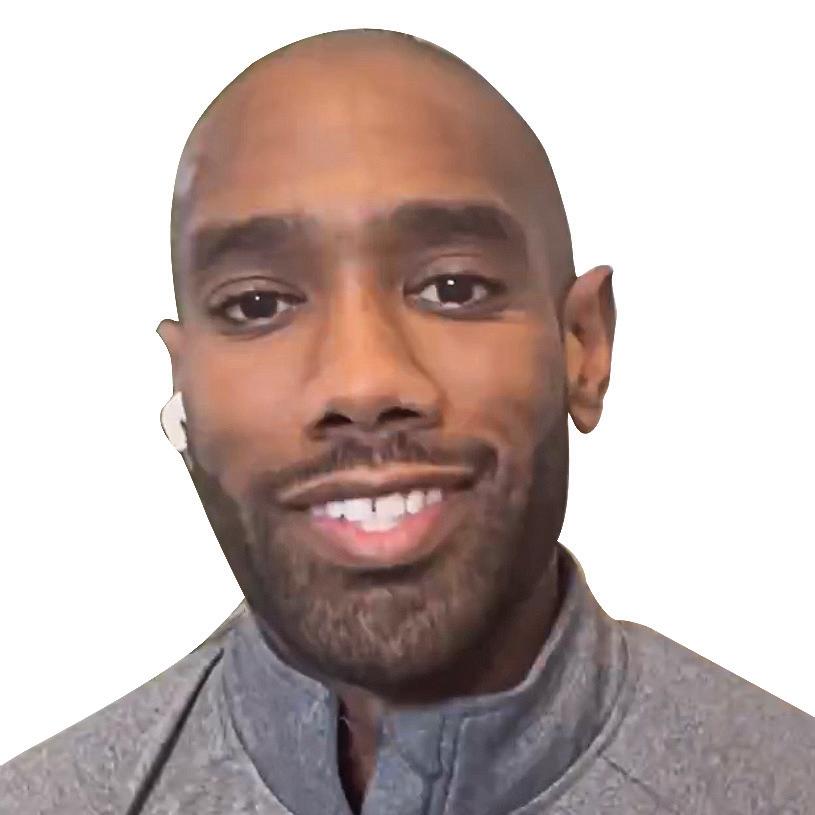
I’d say the lapses are part of the journey. Don’t beat yourself up over it. Look for the lessons within those moments. There’s a lot that can be learned from them. It’s all going to be up to you and your choices – how you choose to interpret those moments and, ultimately, what you could learn from them to help your recovery journey. For example, when I had my lapse, I was on a work trip in Louisiana, where I was specifically in the Shreveport area; there are lots of casinos. I was there for three or four weeks. What I learned from that lapse was that proximity is still the trigger for me, being that close to the casino is a trigger for me and too much downtime was also a trigger for me.













Something I learned is if those things are a trigger for me, I’m going to have to intentionally work to rework that habit. I’m going to have to become hyper-aware of those triggers and those cues that can lead to my gambling. For me, that means intentionally choosing other habits when I do feel like I have a lot of downtime.
In recent years, the gaming industry has turned its focus toward supporting responsible gaming. What resources would you recommend to those who want to know more about gambling addiction?
I like to point people to lots of great information. My go-to site is the National Council on Problem Gambling. It has lots of resources at a national level, but also some to help you narrow down what’s available in your state, and what is available in the local area to help you.
What are your thoughts on how the gaming industry is handling the potential for gambling addiction in the US now that more states are legalizing sports betting?
It’s harder now because people have cell phones. In this era, you can literally just open an app on your phone to do some very intense gaming. People have to think about and put other things in place to self-exclude, and put those barriers and boundaries up.






















































































From the industry standpoint, I would like to see more messaging educating on the reality of gambling addiction. They all have a message of “have a game plan” and “don’t gamble more than you can stand to lose.” I appreciate that those messages are embedded within the marketing and within the promotion. Anyone who has ever been through gambling addiction or if you’re a gambling addiction professional, would like to see more of those messages. Of course, you would like to see more of a balanced reality.
AMBUS HUNTER Financial Counselor
















































I believe there are way more people out there that are silently struggling. They may not even know these funds and programs exist. Some states are better than others as far as how much they are allocating their gambling tax revenues to problem gambling funds. Some states offer maybe 2% to 3% of revenues going to problem gambling. Gambling funds varu state by state, so overall, I’d like to see more.

GAMINGAMERICA | 49 AMBUS HUNTER | GAMING AMERICA
"YES, THERE IS RESPONSIBLE GAMING AND I AM NOT AGAINST GAMBLING. I WANT TO MAKE THAT CLEAR."
WHERE SHOULD OPERATORS ADVERTISE THEIR WARES?
Gaming America takes a deep dive into infographics provided by Epom, to analyze which betting channels and methods are most appealing to betting companies.
Betting operators have a lot to think about when considering the best way to advertise their services and which channels to use. Firstly, there is a conundrum when it comes to getting the balance right in terms of advertising. Are operators trying to gain maximum exposure? Secure the most easily acquirable customers? Garner the most online traffic?
The statistical research company Epom conducted a series of surveys to glean insight into the gaming’s biggest players’ thoughts about advertising channels, in
all their forms. Most operators care purely about customer acquisition as a measure of performance. On these grounds, affiliates and paid searches topped charts for ‘best performing’ advertising channels.
TRUSTED AFFILIATES
At present, there are several dominant affiliates in the US market, including Catena Media, Better Collective, XLMedia and Gambling.com Group. Catena Media reported $117.9m in revenue for FY2022, an annual increase of 7%. The affiliate
Which digital advertising channels are the best-performing in your current advertisng strategy?
has long been making inroads into the American market by purchasing several sports betting and gambling websites. In 2016, it acquired AskGamblers.com for $17.1m, before selling it to GiG in January 2023. AskGamblers.com is a fantastic property for various reasons. Through its Casino Complaint Service, $26m of delayed, unfairly confiscated and otherwise unpaid money has been returned to over 9,873 players. For this reason, among others, the site is trusted by hardcore US gamblers who will follow the online leads generated by the site – taking them straight to the betting operators who have partnered with it.
One big name that has ensnared the services of Catena is Betway, who put pen to pad with the affiliate in 2020. Speaking on this partnership, Catena Media Director
50 | GAMINGAMERICA GAMING AMERICA | EPOM INFOGRAPHICS
60 40 20 0 80 Afiliate Paid search Other social (Twitter, etc.) Google display Programmatic Direct display FB/IG ads TikTok ads Other 76.5% 76.5% 41.2% 35.3% 35.3% 29.4% 29.4% 17.6% 11.8% Graph 1 Graph 2
"FACEBOOK AND INSTAGRAM ADVERTS TOOK 47.1% OF THE SHARE, WHILE TIKTOK ADS HAD 23.5%. COMBINED."
Performance (%)
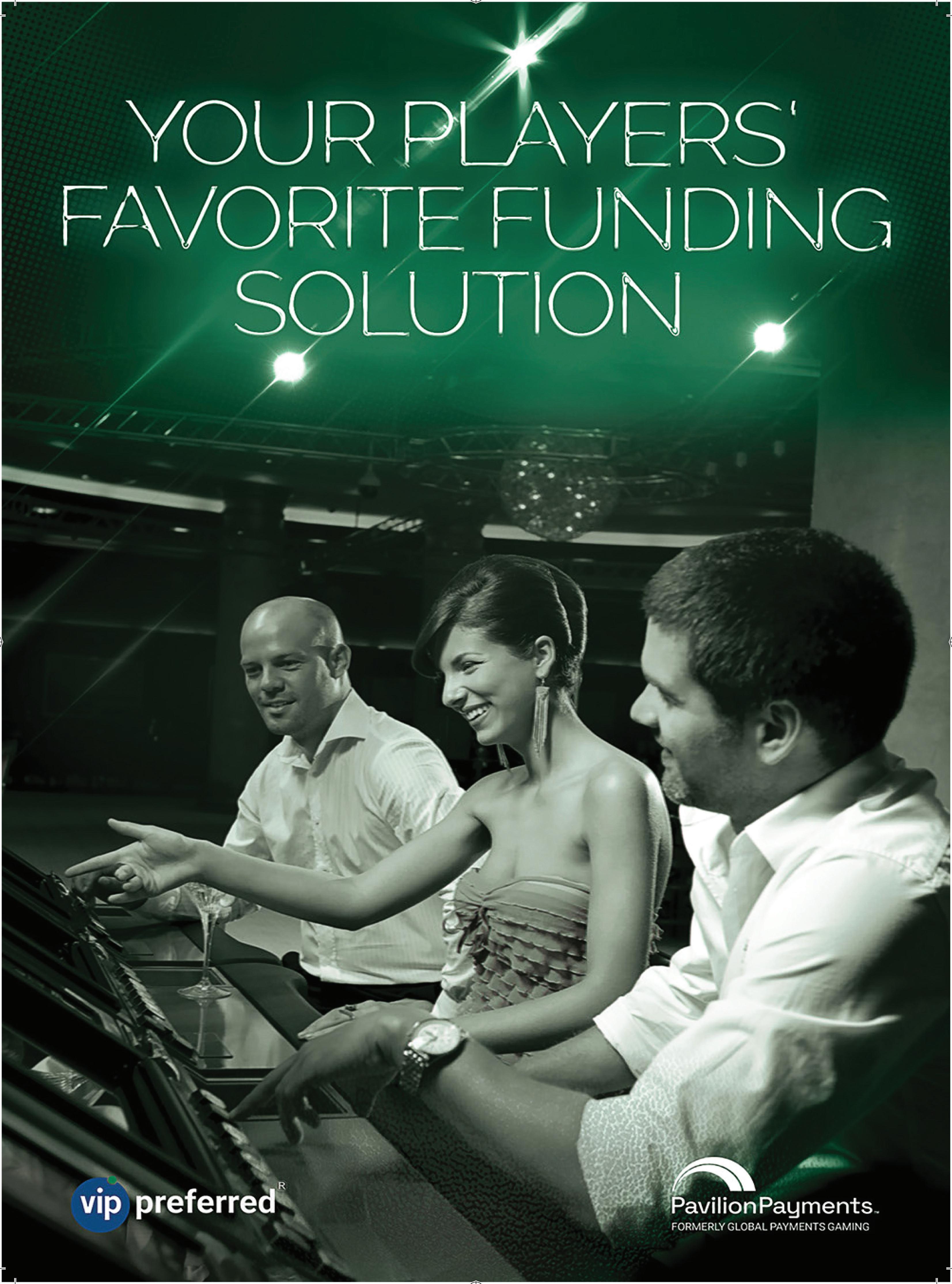
of Commercial Gloria Cereda commented, “We can provide operators with quality leads that deliver globally from Europe, to the US and LatAm, combined with this kind of framework agreement it means local commercial deals can be done quickly and seamlessly to the benefit of all.”
Trusted affiliates such as Catena offer big operators a kind of ‘shortcut’ into newly opened markets. It has already built the audience base, and all an operator such as Betway needs to do is attach its name to the affiliate and see lead-generated figures skyrocket. Look at Massachusetts (where sports betting launched on March 10), where the affiliate is in prime position to take advantage of this particular vertical’s debut. As well as national brands such as Lineups.com and TheLines.com, it has its own regional website in the Bay State – PlayMA.com.
ads had 23.5%. Combined, all forms of social media were hit with an unwelcome majority share of 88.2% in this category. It is unsurprising that platforms designed for millennials and Zoomers are not going to appeal to the more mature, solvent audience that betting operators are targeting.
At G2E 2022, Barstool Sportsbook CEO Erika Nardini took to the stage to argue for the importance of social media. She said the worst thing the gambling industry could do was to go the way of the airline and credit card industries, and stick to the ‘traditional’ forms of advertising. In
think social media advertising is worth it.
How exactly does the financial arrangement between betting companies and affiliates work? There are two main systems that operators use, which are revenue-sharing models (rev-share) and cost-per-acquisition (CPA), with the former being seen as a superior deal for affiliate companies. With CPA, they are paid for every customer they deliver to a betting company, while with a rev-share system, they are guaranteed a payout – especially when they partner with the likes of Betway. With the second-most popular channel for operators – paid searches – the financial
Betting operators were hungry to enter the Massachusetts sports betting market, as the state boasts some of the US’ most famous sporting franchises, such as the Boston Celtics, the Red Sox and the Patriots. So, if affiliates and paid searches are the most desired advertising channels which ones are the least?
THE ANTISOCIAL NETWORK
When asked ‘Which advertising channels are the worst performing in your current marketing strategy,’ operators overwhelmingly concluded that social media was the weakest link. Facebook and Instagram adverts took 47.1% of the share, while TikTok
her keynote speech, she said: “If you want your brand to gain the attention you need to know how to use social media to get it.”
However, Nardini evidently doesn’t speak for the gambling industry when we take a look at Epom’s figures. There are more downsides to social media channels – other than their perceived ‘gimmickiness.’ There are many different forms of social media, making it a highly competitive field, with low feasibility due – in part – to strict requirements. What’s more, there is the associated upkeep intrinsic to social media. Operators need to manually or automatically update campaigns multiple times a day, and with the data they currently have on hand, betting operators may not
arrangement is always done via pay-per-click (PPC) whereby the operator pays search engines to bump their adverts higher up on their platforms.
DraftKings provides a 35% cut to its affiliate programs, with the affiliate choosing between a CPA or rev share model depending on their preference. Affiliates can create YouTube channels or websites to promote the company’s content and adorn the DraftKings banner at the top of their landing pages. Major operators such as Betway still want their own employees in charge of buying the media that drives traffic to their services.
This graph demonstrates that betting companies prefer to buy display traffic
52 | GAMINGAMERICA GAMING AMERICA | EPOM INFOGRAPHICS 60 40 20 0 80 Afiliate Paid search Other social (Twitter, etc.) Google display Programmatic Direct display FB/IG ads TikTok ads Other 76.5% 76.5% 41.2% 35.3% 35.3% 29.4% 29.4% 17.6% 11.8% 60 40 20 0 Afiliate Paid search Other social (Twitter, etc.) Google display Programmatic Direct display FB/IG ads TikTok ads Other 47.1% 29.4% 23.5% 17.6% 11.8% 11.8% 11.8% 0% 0% Graph 1 Graph 2
an in-house ad server/DSP, and an in-house media team Delegate it to an ad agency/ad network Delegate now, but have a plan to build my own software and hire a team 35.3% 29.4% 17.6%
Have an in-house media buying team but use 3rd-party platform Have
Graph 3
"ONLY 17% DELEGATED ALL ADVERTISING RESPONSIBILITIES TO AN OUTSIDE ADVERTISEMENT AGENCY OR NETWORK."
Performance (%)
Which digital advertising channels are the worst-performing in your current advertisng strategy?
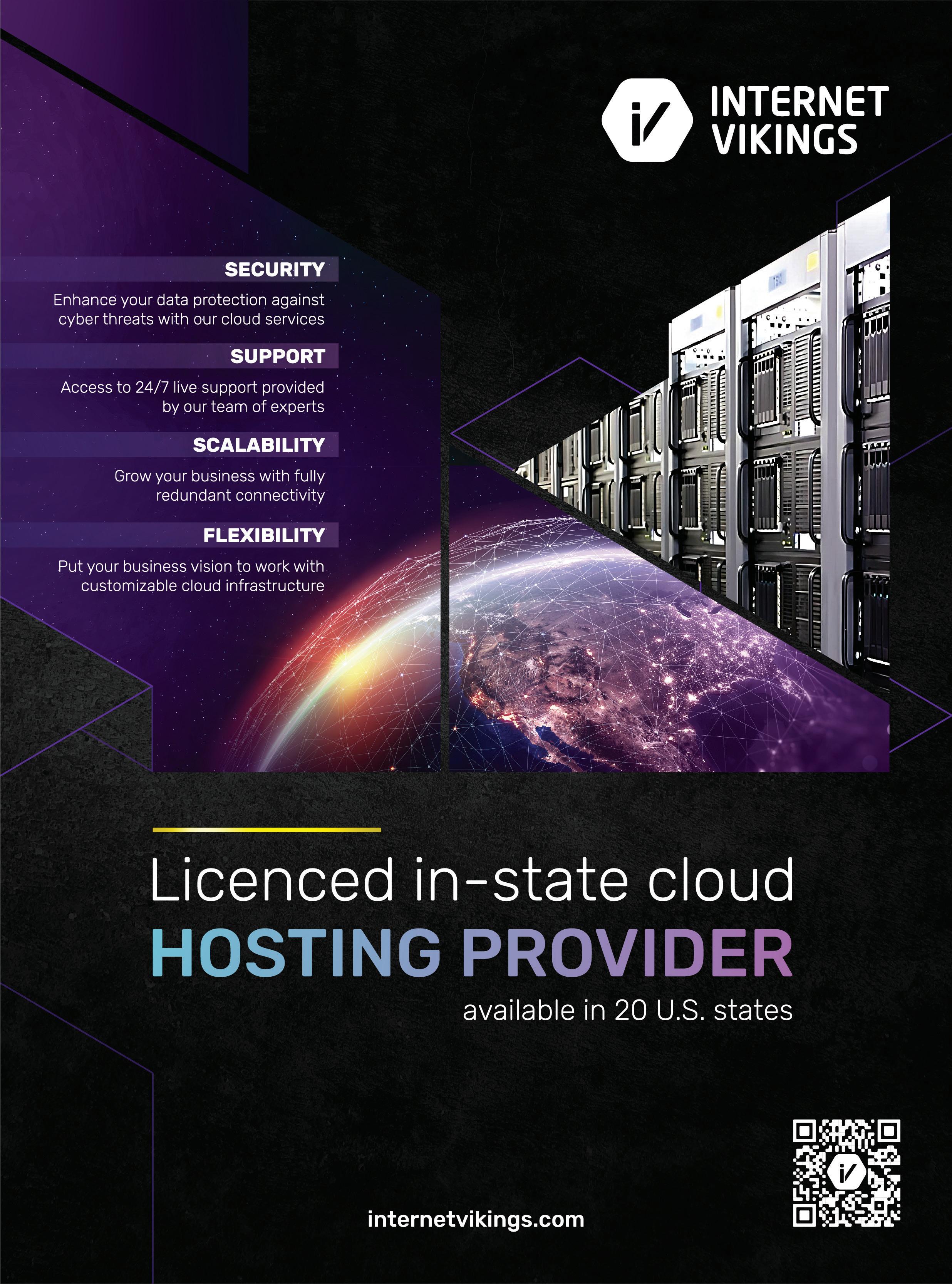
using hybrid methods of advertising. Most operators surveyed (35%) said they had an in-house media buying team and also used a third-party platform to advertise. Meanwhile, 29.4% said they have an in-house server or demand-side platform (DSP) as well as an in-house media buying team. Only 17% delegated all advertising responsibilities to an outside advertisement agency or network.
Turning its attention to software, Epom asked the surveyees: ‘What challenges do you currently face with your in-house software as a betting company?’ The answers to this question were very mixed. Some betting operators said they were in full control of their media buying and were satisfied with it, with some saying they used native tools that didn’t require any software at all.
There were complaints, though, with criticism about the ability to track in-house marketing performance. Others give negative feedback regarding a disparity in first-party data that makes scoring or registering conversions difficult. Epom also reported that operators wished for more from their in-house systems: in some cases, more precise control over daily/weekly budget pacing to match seasonal engagement. Others complained that traffic spikes during big games could slow their operations or even result in downtime for their online platforms.
However, respondents generally agreed that DSP and ad-server offers (that are operated by their in-house teams) were very effective in serving media ads. Likewise, they had no major challenges in collaborating with third-party agencies, rather just a few hiccups. Betting operators suggested that they wished for improved tracking of ad serving results and also complained about heavy workloads that were required to meet US regulations. When discussing in-house advertising, ad servers are an obvious priority for betting companies. One message is clear: the technology that places adverts on their sites, mobile apps and other forms of media must be impeccable and there is room
for improvement. They want more configuration flexibility, which in turn grants them more engagement with potential customers.
MAIN TAKEAWAYS
In today’s market, affiliate marketing and PPC are still the top choices for ad channels among dominant betting operators. Programmatic advertising is on an upward trajectory but will take a while to become the lead runner of the pack. In-house media teams are held in high esteem by operators, whether they
outsource advertising or not. When operators rely on their own employees for the purchasing of ad media they have a greater degree of control. This system also allows them to have full visibility regarding who their partners are, where their campaigns run and how their budget is being expended. Reliable toolkits for advertising channels are of paramount importance to operators and they report trusting third-party server ads and white-label DSPs the most. Epom predicts that this trend will continue in 2023
54 | GAMINGAMERICA GAMING AMERICA | EPOM INFOGRAPHICS
and beyond. 20 0 Afiliate Paid search Other social (Twitter, etc.) Google display Programmatic Direct display FB/IG ads TikTok ads Other 17.6% 11.8% 60 40 20 0 Afiliate Paid search Other social (Twitter, etc.) Google display Programmatic Direct display FB/IG ads TikTok ads Other 47.1% 29.4% 23.5% 17.6% 11.8% 11.8% 11.8% 0% 0% Graph 2 0 10 20 30 40 Have an in-house media buying team but use 3rd-party platform Have an in-house ad server/DSP, and an in-house media team Delegate it to an ad agency/ad network Delegate now, but have a plan to build my own software and hire a team 35.3% 29.5% 17.6% 17.6% Graph 3
Do you buy display traffic in-house or delegate it to an ad agency/network? Total (%)
"WE CAN PROVIDE OPERATORS WITH QUALITY LEADS THAT DELIVER GLOBALLY FROM EUROPE, TO THE US AND LATAM, COMBINED WITH THIS KIND OF FRAMEWORK AGREEMENT."
Shoot To Win Craps™ -Reborn.













Revitalizing the Shoot To Win Craps for an immersive experience with interactive play and spectacularly upgraded visuals.







SALES@ARUZE-GAMING.COM WWW.ARUZEGAMING.COM +1 (702) 361-3166
BECOMING A BETTER BETTOR

Travis Geiger of WagerWire speaks to Gaming America about the brand’s attempts to launch a new concept, a social media community and a Bet Value Calculator, through the ethos of ‘being a good hang.’






Thanks for joining us. To start with, can you tell us about the launch of your app and Bet Value Calculator?
The Bet Value Calculator tells you the fair market value of any bet in real time, automated in the app. You can then compare it to a cash-out offer. What we found is no one’s ever really known if they’re getting a fair cash-out because they have nothing to compare it to. The Bet Value Calculator gives you a baseline, like the free-market price. We see the cash-out like an eBay ‘buy it now’ price. We empower people to take control of their bets to treat them as assets –
investments that have intrinsic value –not a shot in the dark that’s going to win or lose.



About that asset mentality, how popular is your concept regarding buying and selling previously placed bets? Do any other companies do this?
A company called Prop Swap did it in the paper ticket market. Paper tickets are only about 10% of overall handle, so we’re attacking the digital side. We’re of the opinion that once a bet is placed, it’s now the same as a title for a car or a deed to a house. We did a US survey
with Leger where 90% of people said they would sign up for a sportsbook that had a resale market over one that did not. We had to double check these numbers because we thought, “people are going to think we’re lying!” It becomes a big part of the appeal when this industry is so commoditized. For example, if I want to buy your bet, I have to sign up for the book that it originated from. It then becomes a retention thing, because now I’m going back and checking my portfolio. We also think people are going to make more bets and put more down because now they have an out.
There’s a social aspect of it, too. This is


56 | GAMINGAMERICA GAMING AMERICA | SPORTS EXCHANGE
how the concept started. My roommate had a bet I wanted to buy into. I started to realize there was something lacking in the experience, the education and the way we talk about betting. We’re trying to make an app we want to use and a sports betting experience that’s fun. Our three Co-Founders were all UCLA roommates. We never expected people on Twitter would be putting our logo on top of their faces. It’s hard to do anything new in this industry, but we feel like this is inevitable. They don’t have this in Europe yet – but I think they will.

We’ve noticed you have a whole online media community with daily content, which includes everything from March Madness to mental health. How do you pick your contributors?
This was a totally organic process, which we loved. We slowly grew this over time as we were interacting and getting to know our fans on Twitter before we even told them what our brand was. When we announced our brand, they lined up and said, “How can we be part of this?”
Whenever we put out content, the creators support each other, which grows the concentric circle of the algorithm each time. We see some of these casinos sitting on hundreds of thousands of followers with a tweet that gets two or three likes. We want our content to be a conversation, not just a post.
You have the conversation going on TikTok, as well. Is TikTok a genuine source of paying players for you?
Our TikTok is only a month old, but we’ve been able to get over 100,000 likes in the first 30 days. We just want to be a good hang. They love sports, they love sports betting and if they love hanging out with you, they’ll stay in your ecosystem. We’ve never spent a dollar on a paid ad. We want to put our money into product, engineering and creating a best-in-class user experience. MaximBet chose a lifestyle lane, but they never really invited anyone into it. People don’t care about




your parties; you’re not changing the game for me in the way you’re telling me you are. The cool thing about having this community is immediate feedback. We’re able to show them our app and say, ‘does this make sense to you?’ People might come as creators and stay for betting, or come for betting and become creators. We have a built-in community who are going to be our core users.
If people feel like their ideas are actually being incorporated into your company, that’s empowering. The community site and the community page create a way to interact within the ecosystem. Whereas, if I go on FanDuel, I’m signing on, I’m doing my business and I’m getting out.
How does your catchphrase of "bets no longer have to win to make money" work? And how well does the community know what that means?
The people that have gravitated toward it want to get educated. They have good instincts but probably won’t hit all their bets. They don’t want to put $100 down just to lose it. If they know the Cowboys are going to have an easy first five games but they might not
win the Super Bowl, they can put money on the Cowboys to win the Super Bowl,.. knowing at a five-game hot streak somebody who’s a Dallas diehard is going to win it all this year. You can make money betting on momentum plays. Yes, there’s the downside protection, but there’s also capitalizing on things in a new way.
How does your rewards system work?
Our WagerWire app has a universal wallet. All of your bets and all of the books you play are synced. We’re plugging in the partner rewards where possible. We’re talking to people like Fanatics. You placed five New York Jets bets this year? Here’s a coupon to buy a Jets jersey. We’re able to do that in a way that books can’t. We can incentivize people in different ways because this is a storefront for the books.
The last question we have was based on a quote in your website bio,“WagerWire turns your risks into assets.” Since there is some inherent risk, have you made any efforts through WagerWire to address problem gambling or responsible gaming (RG)? 100 – It’s one of our biggest priorities. We’re compliant with all the RG and exclusion checks. Because of the way our system works, nothing can be done on WagerWire that couldn’t be done through a casino system. If they’re banned or excluded, they’re not going to be able to buy on WagerWire. We’re also working with the Ohio Institute for Responsible Gaming. It’s their opinion that WagerWire is part of a healthy marketplace and consumer protection.
TRAVIS GEIGER
You should be able to sell your bet and not just for pennies on the dollar to the casino. We are an out, but on the educational part of things, we don’t have a misaligned incentive. These casinos' business model is to make money on losses. We make money whenever a bet changes hands or you sign up for a sportsbook. We actually want you to become a better, more mature bettor.
GAMINGAMERICA | 57 SPORTS EXCHANGE | GAMING AMERICA
WagerWire Co-Founder
WHERE IS THE PAYMENTS INDUSTRY HEADED?
Gaming America speaks to Christopher Justice (Pavilion Payments), John Skorick (MIDs), Anne Hay (PayNearMe), Victor Newsom (Everi) and Mandi Hart (Sightline).

 ANNE HAY, SVP and Chief Marketing Officer at PayNearMe
ANNE HAY, SVP and Chief Marketing Officer at PayNearMe

With more than 15 years’ experience in the payments industry, Anne Hay is focused on covering the consumer and business trends iGaming and sports betting operators can use to inform and guide their payment strategies.

JOHN SKORICK, Founder of MIDs



John Skorick founded global fintech, MIDs, and payments consulting company SpurLead. John is a payments expert who started in the industry in 1997 at the first IPSP, DMR. In 2000, John left DMR to join payments startup, Jettis, and eventually took over all client services and business development. In 2009 John launched SpurLead, a payments and risk management company which he still oversees today. John acquired the domain mids. com to launch his global payments service. MIDs offers card acquiring and APM’s for iGaming companies globally.
VICTOR NEWSOM, SVP Product Management, Payment Solutions for Everi


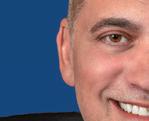


Victor Newsom is a FinTech and Gaming veteran who has held leadership positions for a wide range of companies engaged in acquiring and issuing, processing, US and International operations, and card-based, virtual, cryptocurrency, and mobile payments, as well as DeFi. Victor has consulted with US law enforcement, worked on payments legislation, advised on central bank policy in emerging markets, and FinTech-related intellectual property.
MANDI HART, Head of Product for Sightline Payments







W ith over 20 years’ experience in the gaming payments industry - including cash access, electronic check cashing, ATM, and kiosk solutions - Mandi Hart was instrumental in the company’s launches of cashless gaming technology at Resorts World Las Vegas and at Boyd Gaming properties in Nevada, Indiana, Ohio, and Pennsylvania. Her team also launched Sightline in sports betting states including Arizona and Wyoming. She has been on Sightline’s executive team for nearly a decade, serving as the Chief Client Solutions Officer before her current role. Prior to joining Sightline, she was the associate vice president of gaming business development at FIS.
CHRISTOPHER JUSTICE, CEO of Pavilion Payments
Christopher Justice’s 30-year career spans executive leadership roles with CenPOS, Ingenico, Merchant Link, First Data and Concord EFS. Christopher is an expert in the digital convergence of brick-and-mortar and e-commerce to deliver omnichannel consumer experiences. He joined Pavilion Payments, formerly Global Payments Gaming Solutions, in 2017 to lead its gaming division. Christopher has accelerated the organization’s mobile cashless funding, selfservice, iGaming, security, and risk initiatives to help gaming operators modernize their cash access infrastructure, improve guest experience across resorts and capture new business. He is a member of the Board of Directors for the American Gaming Association and a member of iDEA.

58 GAMINGAMERICA GAMING AMERICA | VIEWPOINTS
Anne Hay: We like to say that the entire player experience should be “pixel perfect.”

At the first sign of a hiccup or glitch, players –especially new ones –can become leery of the entire process. Giving them that streamlined, seamless experience and offering the right mix of tender types is what will win over players and keep them coming back. Players want to have a choice of payment types they’re already using in day-to-day life, and when those specific payment types are already integrated into their betting app, players are more likely to come back and bet more often. According to research we did last year, 32% of players said they would make larger deposits more often if they had access to preferred payment types. Operators will see higher customer loyalty and higher player acquisition just by optimizing their cashier’s mix of tender types.

Christopher Justice: While many payments providers and gaming institutions offer great loyalty programs for their patrons, the real key to patron loyalty is an outstanding core payments experience. It does not matter if you have a slick-looking user interface or exciting offerings, if the payment experience is cumbersome or unwieldy. If your payment system is frustrating to use, then patrons will simply take their business elsewhere. For example, VIP Preferred allows patrons to utilize online bank credentials for faster, easier enrollment, and the nearly 3 million VIP Preferred users across the US can quickly and easily move their funds across participating institutions after a one-time enrollment.
WHAT IMPACTS CUSTOMER LOYALTY FROM A PAYMENTS PERSPECTIVE
Victor Newsom: It is based on customer experience – convenience and perceived value. If I’m a customer, is there a value of me using loyalty points for spending and affinity, credit or debit, or some other debit product? Is there perceived value in going through a particular app so that I can get my comps, discounts and rewards? Did the customer have to go through a lot of hoops to enroll, download or set up that capability? As you remove friction on the front end, and as you increase the perceived value for better benefits in the back end, you have a compelling customer loyalty and engagement story. “Embedded payments” or “invisible payments,” not only remove friction from the enrollment process or opt-in process, but remove friction from the execution payments. Everi can help operators dynamically adapt to their needs, situation, and points of interaction – be the mechanics underneath the hood.
Mandi Hart: Several industry studies have shown that fast cash outs is the top reason a customer chooses a sportsbook.
We’ve done a great job as an industry in improving the deposit options – with debit card acceptance around 95% now, up from around 60% in 2018 when PASPA overturned. Until recently, cash outs have lagged behind with some operators taking a slow approach that could result in withdrawals taking up to five days. Sightline’s Play+ solution was designed for facilitating quick withdrawals, and you are finally seeing some additional innovation around real-time payments to enable those fast cash outs. As fast cash outs become standard operating procedure, you will see more innovation in leveraging payments as a loyalty tool. Just look at companies like Target, Walmart, and Starbucks. This strategy could have massive implications for gaming, as an omnichannel experience will allow patrons to move seamlessly from a table, to valet, to checkout and everything in between.








John Skorick: Offering the most common and popular payment methods in the customer’s respective country. The US is very simple. It’s almost all credit cards. But international operators need to offer the APMs (alternative payment methods) of choice in each country they wish to operate in, as customers have very specific preferences when it comes to ease of payment and payment methods. When in doubt, make it easy to pay.

GAMINGAMERICA 59 VIEWPOINTS | GAMING AMERICA
Anne Hay: I think the biggest current challenge is navigating the rapidly changing landscape of iCasino and online sports betting. This includes emerging new audiences and territories, constant regulatory changes and frequent updates to payment technology. We always have to be aware of the shifting demographics of online players and their payment preferences. We need to innovate quickly to be able to cater to those preferences to capture that market for our operators. Then on the back end, we must remain compliant with all of the new states legalizing, so that our customers can go live quickly. It’s all about speed and adaptability right now, and we want to provide that for our partners and clients.




John Skorick: Regulations. Gaming demand is global and each country, or state/municipality, has different regulations and these regulations are constantly changing. We saw the fallout in India last year and many operators are still recovering from it. Proposed changes are happening in Europe, indecision in the US; it’s a constant challenge to keep up with.










Victor Newsom: There’s a convergence of challenges that span a few categories. We have the regulatory landscape that needs to continue to evolve in the face of emerging technologies, entrenched infrastructure and organizational mindset with operators, and converging customer journeys and use cases across channels and legal entities. Conversations around a “super app,” where you can game online, do sports wagering, pay for your hotel, attend an event, etc. are increasingly normalized. This leads to pressure to create a seamless experience. As a payments company, if you’re going to be part of the vision for what the industry could do, you have to work harder in the execution, the delivery process and in solving the technology and regulatory challenges. In the face of those challenges, Everi has continued to invest heavily in our people, licensing, and technologies, so that we can provide bridged omni-channel, multi-segment, tailored capabilities that encourage guests to have differentiated experiences.


Mandi Hart: The patchwork quilt of compliance and regulatory obligations, which are only growing more complex as online sports betting grows along with new jurisdictions. There is really no one-size-fitsall approach to payments from the mix of funding options to the licensing categories. Fortunately, Sightline has a tremendous team that understands the intersection of gaming and payments, allowing us to stay on top of these shifting trends and maintain a culture that understands these differences in order to deliver for our clients. This year we’ve worked with several regulatory bodies on their payments regulations to ensure that companies can simply remain compliant with them, like what we saw with proposals to prohibit joint bank accounts from being used for funding.


















Christopher Justice: One of the most demanding aspects of our work has been keeping up with consumer expectations. Things like cashless transactions and e-commerce have dramatically shifted expectations, and we see it as our goal to bring that same payment experience that patrons have come to expect to the gaming industry. Pavilion’s e-check network, VIP Preferred, allows casino patrons to connect to more than 400 in-person and online gaming institutions, enabling the kind of seamless payments that patrons expect.




























60 GAMINGAMERICA GAMING AMERICA | VIEWPOINTS
WHAT IS THE BIGGEST GAMING INDUSTRY CHALLENGE FOR A PAYMENTS COMPANY TO KEEP UP WITH COMPANY TO
Anne Hay: Macro conditions need to improve and regulations need to be ironed out before players and regulators are comfortable with crypto (specifically Bitcoin) being used in sports betting and iGaming. On the other hand, alternative payment methods like digital wallets are incredibly in-demand. The most preferred payment method from our research was PayPal, with 64% of players stating its importance. Venmo was also a preferred payment method for 48% of survey respondents. Customers want the frictionless payment experience that comes with digital wallet apps already downloaded on their devices—plus, these are apps that they already trust.
John Skorick: APMs specific to the customer country are critical for acceptance rates and customer satisfaction. I’m in favor of offering customers as many options as reasonably possible. I believe the majority of people buy crypto for investment, not spending, but with the ability for operators to accept and exchange for fiat in real-time, it is a solid and noteworthy option.
WHAT ARE YOUR THOUGHTS ON ALTERNATIVE PAYMENTS, SUCH AS CRYPTO








Mandi Hart: Customers should have the same payment options in gaming as they do in their daily lives. We at Sightline are so passionate about providing digital payments solutions at brick-and-mortar casinos. You’ve seen some of these alternative payment methods, Venmo and Zelle in particular, introduced in the cashier page for many sports betting operators. As for crypto, we’ve spent a lot of time on that opportunity, working with regulators to educate them on the technology. Until you have some federal guidelines surrounding the use of cryptocurrencies, it makes sense for the industry to take a slower approach to accepting those payments.
Victor Newsom: Whether it’s mainstream or alternative, you’re always trying to grapple with how easy it is to accept a payment, how trustworthy it is, and how real the payment is. In most cases, in regulated environments, who is providing the payment identity is important. With methods like crypto or real-time payments from the clearinghouse or fed, the idea of irrevocable transactions in real time are very attractive. They’re not necessarily technically easy, but the idea is that there’s really no (or low) risk of settlement associated with those transactions. The reality is you still have a lot of friction points in terms of identity. Everi has several products designed for the gaming sector that address regulatory, reputational, financial, settlement, and other risks while delivering convenience and value – but it is definitely not easy. It’s an industry challenge that means a tremendous amount of player, staff and regulator education requirements.

Christopher Justice: While alternative forms of payment are certainly interesting, there are not enough use cases for them to be viable for the gaming industry at this time. There are also regulatory implications of using cryptocurrencies in gaming, especially considering some of the recent controversies surrounding crypto. We will continue to keep a close eye on new alternative payment methods and develop ways to incorporate them into our solutions when they become commercially viable.

GAMINGAMERICA 61 VIEWPOINTS | GAMING AMERICA
Anne Hay: I think a lot of the interesting recent technology developments have been centered around AI and its possibilities. We expect AI and machine learning to have a profound impact on the payments industry, including faster fraud detection, streamlined Know Your Customer (KYC) processes, predictive payment outcomes, instant transaction processing, and fewer mistakes with reconciliation and settlement. We’ll definitely be keeping an eye on the advancements and assessing the opportunities. As far as the technology within our own platform, we take great care in protecting our operators against potential risk and fraud while providing players with a frictionless payments experience. We allow operators to fund player withdrawals with a single For Benefit Of account (FBO). Not only does this significantly reduce the complexity of offering many pay out options, but our backend processes enable operators to remain liquid and in control.





Christopher Justice: The way people move money has completely changed in the past couple of decades, and all of the recent innovations in payment technology have reshaped how customers want to spend their money on gaming. New technology like real-time payments has radically altered the payments industry at large, and their applications for the gaming industry could be equally revolutionary. New advancements like two-factor authentication also keep our clients and their patrons safer than ever.
Mandi Hart: The advancements around KYC orchestration have been massive. We talk a lot with regulators about the evolution surrounding digital identity verification, how it has improved over the past few years, and how new tools can help better protect players and operators alike. We have found that no one KYC solution can provide all the tools necessary – some are great at ID capture, others with biometrics and device fingerprinting, and others with their database checks. But as you begin to group these solutions together, you can really effectuate a more secure customer experience that reduces fraud and account takeover dramatically.
WHAT ADVANCEMENTSTECHNOLOGICAL HAVE RECENTLY CHANGED HOW YOU DO BUSINESS


























Victor Newsom: With new payments technology comes a change in actors, which is challenging the regulatory bar set for who can come into the space. It’s creating confusion as to who owns the guest experience and how we coordinate that to have the best loyalty and engagement. AI, facial recognition, biometrics, new uses of blockchain (not just for payments but for things that are like NFTs, real-world ownership or access controls) all have tremendous amount of promise for customer experiences, employee efficiency, and require advanced training to in more efficiently.
















John Skorick: Craftly.ai has been a useful tool for content and advertising. But I still think the prevalence of video calls that came out of the pandemic have been incredibly important for our business. Our business is about relationships and trust. It’s important to be able to see each other, make eye contact and establish a trusting relationship. Not tech, but I’m very glad travel has opened back up for this reason, too.

62 GAMINGAMERICA GAMING AMERICA | VIEWPOINTS
WHAT'S NEW?
Gaming America looks at four suppliers' newest land-based slots, available across the country.

ECLIPSE GAMING’S CLASS II LUCKY BAO BEI™



Eclipse Gaming introduces Lucky Bao Bei®, featuring adorable Asian-themed symbols of luck and fortune. This video slot takes your players on a non-stop journey to win wilds, scatter pays, multipliers, and the Free Spins Bonus to experience wild reels or free spin super pays with multipliers. In the Wild Stack Mirror Feature, when Wild Stacks appear on reels 1, 3, and 5, they will mirror themselves to the reel next to them; covering all reels with Wild Stacks is a possibility!

cat, elephant, and turtle. Players will love the multi-level progressives, stacked wilds, scatter pays, and the Free Spin Bonus, where they can choose their bonus to experience wild reels or free spin super pays with multipliers from 2x to 8x for bigger wins.



Stacks is a possibility!













Senior Vice President of Marketing







Laura Olson-Reyes said, “We are thrilled to see Lucky Bao Bei launch onto casino floors. It is a beautifully designed, Asian-themed video slot that features adorable Asian characters known for luck and fortune, such as a























During the Free Spins Scatter Pay, the player is awarded one of two bonus games. The first is a Wild Pays 10 Spin Free Spins Bonus with stacked and locked wild reels; the second is a Rising Pay Multiplier Bonus, and with each spin in Free Spins, the player is awarded a higher multiplier from 2x to 8x for bigger wins. During the Progressive Pick’Em Scatter, the player matches symbols to win a fixed prize or massive jackpot award!


designed, Asian-themed video slot that








Lucky Bao Bei is available in both portrait and dual-screen formats on Eclipse Gaming’s IMPACT 49™, IMPACT 43™, and IMPACT 27™ slot cabinets.


PRODUCT REVIEWS | GAMING AMERICA
AMERICA 63
ARUZE GAMING’S GONG GONG LAI FU TITLES WITH ACTIVPLAY™

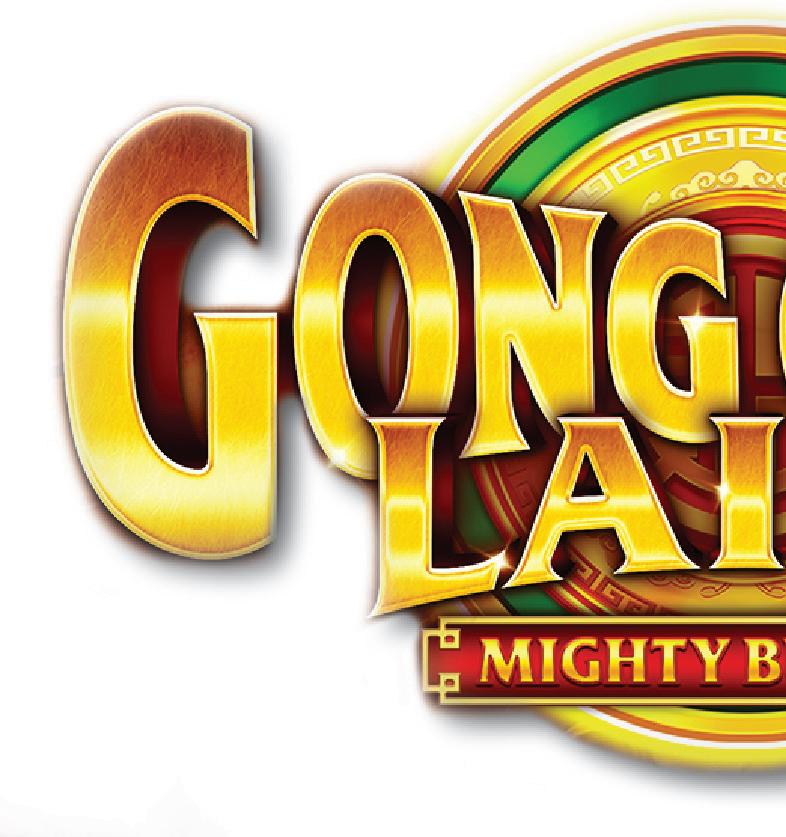

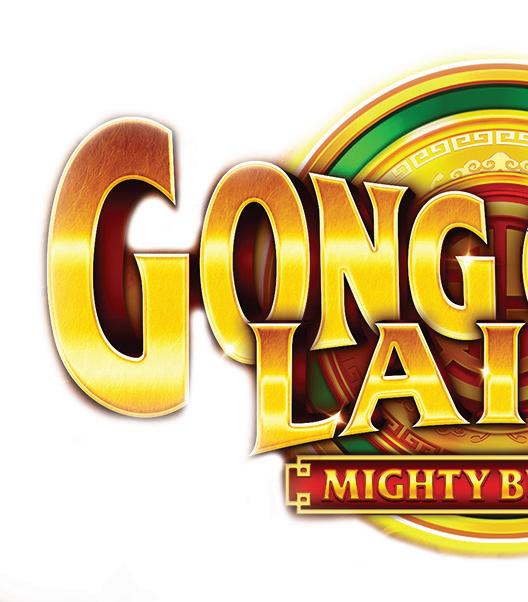
In bright red and gold, Gong Gong Lai Fu brings two new video slots for Aruze’s Muso 55 Curve.

Aruze Gaming has spent its history innovating the classics without discarding classic offerings. Aruze demonstrates this by continuing to introduce new and exciting video slots, like Gong Gong Lai Fu, and ETGs, in addition to its now industry-famous Activ-Play™ offerings.


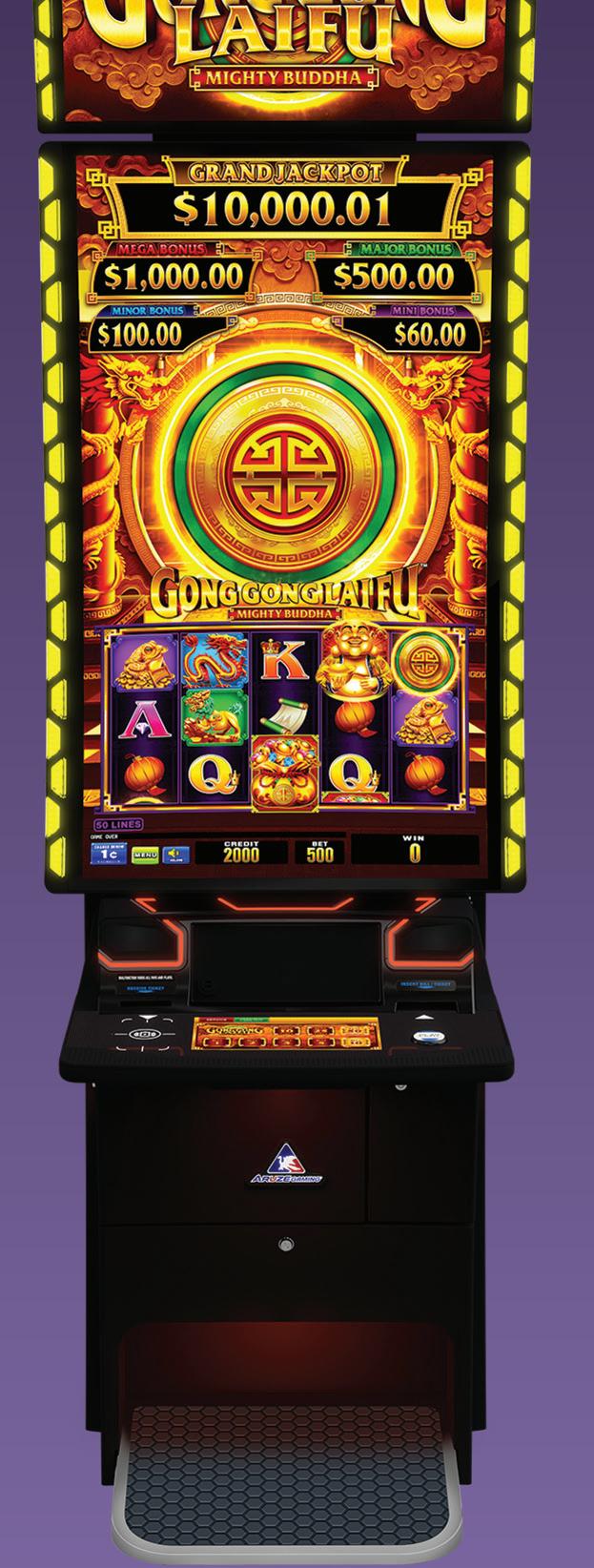

Ring a gong and bring good fortune! Gong Gong Lai Fu has two title options, Mighty Buddha and Caishen Riches, exclusive to Aruze’s top performing cabinet the Muso Curve 55.
A new set of reels will appear during Gong Gong Lai Fu Feature, awarding credit prizes or bonuses. With each gong appearance, it resounds — the gongs stay through the feature, adding to players possible winnings. Players who have Buddha’s lucky blessing can get all 15 gongs, putting the grand jackpot right in their pocket. Dragons, gods and merchants appear larger than life when this game is featured on Aruze’s Muso Curve 55.
64 GAMINGAMERICA
| PRODUCT REVIEWS
GAMING AMERICA
KONAMI’S DIMENSION TOP BOX DEBUTS WITH CASH PARADE
Konami’s new DIMENSION TOP Box, backed by its own premium content library, offers players and properties yet another exciting form factor for creative Konami entertainment. Using the same, proven base design as the DIMENSION
49J, DIMENSION 27, and DIMENSION
49, DIMENSION TOP Box is unique in its screen configuration. It is composed of a lower 27-inch screen and an upper 49-inch curved screen, in Ultra HighDefinition (UHD). The machine’s upper portrait screen provides an eye-catching canvas for synchronized, linked bonus event across multiple machines, as demonstrated in debut series Cash Parade, China Shores Pagoda, and Mayan Chief Pyramid.
Fortune and festivity collide in a sea of lights and fireworks with the debut
of Cash Parade on DIMENSION
TOP Box. This premium linked
when they land in combination
TOP Box. This premium linked progressive series grants players entry to a theme park parade of lights, where they can spin to win random prizes from brilliantly -animated parade floats. Throughout game play, Gold Star symbols appear on reel 5, triggering bonus events when they land in combination with Coin symbols and/or Cash Parade symbols on the proceeding

4 reels. If a Gold Star lands on reel 5 the screens until they receive the




Win feature, delivered through a
4 reels. If a Gold Star lands on reel 5 with at least 1 Cash Parade symbol, the Cash Parade feature is awarded. The player collects random prize from the animated floats parading across the screens until they receive the “Collect” token and the feature is finished. The series also has a Repeat Win feature, delivered through a glittering fireworks display.



PRODUCT REVIEWS | GAMING AMERICA
AMERICA 65
"THIS PREMIUM LINKED PROGRESSIVE SERIES GRANTS PLAYERS ENTRY TO A THEME PARK PARADE OF LIGHTS, WHERE THEY CAN SPIN TO WIN RANDOM PRIZES."
LIGHT & WONDER’S NEW COSMIC CABINET GAMES
Devised by renowned game designer Qin You, BIG HOT FLAMING POTS is a three-pot mechanic game that features Yummy, Upsized and Spicy pots as well as vibrant animations including a whim-sical “dumpling tossing” feature. The game allows scatter prizes to be removed and won before the end of the Hold & Spin feature for a more exciting and extended gameplay experience. BIG HOT FLAMING POTS will be available for sale on L&W’s powerful new COSMIC™ display cabinet.
Also making its debut on the COSMIC™ cabinet is the new ZODIAC LANTERN series that features two titles, ZODIAC LANTERN–TIGER and ZODIAC LANTERN–RABBIT, combining the Persistent Pot from 88 FORTUNES® with a multi-reel array Hold & Spin


feature. These thrilling games – cre-ated by Jamie Knight, the innovative designer behind the hit MONEY LINK® franchise – were in-spired by the Chinese zodiac cycles, the Year of the Tiger (2022) and the Year of the Rabbit (2023). Free Game bonuses in both games are triggered by three Koi Fish Symbols and the Lan-tern Feature – the main Hold & Spin feature for these titles – which triggers by landing six Lantern Symbols.
RICH LITTLE HENS is a new franchise focused around three hens that
continue to grow until a bo-nus is triggered. With the opportunity to combine all three hens into one MEGA feature, players can experience up to a 7x wild multiplier, progressive free games and a jackpot chase all at once. De-signed by Shawn Soong, the studio behind the success of BLAZING 777 2x3x5x NUDGE™ and BLAZING 777 TRIPLE DOUBLE JACKPOT WILD™, RICH LITTLE HENS also offers a high-denom option with newly added denominations setting it up for success with all players.
66 GAMINGAMERICA GAMING AMERICA | PRODUCT REVIEWS
"PLAYERS CAN EXPERIENCE UP TO A 7X WILD MULTIPLIER, PROGRESSIVE FREE GAMES AND A JACKPOT CHASE ALL AT ONCE."

























































































































































































































































































































































 Velvix Managing Director
Velvix Managing Director


















































































































































































































































































 ANNE HAY, SVP and Chief Marketing Officer at PayNearMe
ANNE HAY, SVP and Chief Marketing Officer at PayNearMe





















































































































































































































































